
The Exeter School Alumni Magazine


The Exeter School Alumni Magazine
How local Exonians are shaping the food and drink scene


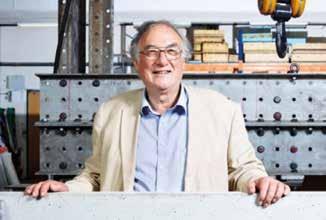





We are sending this issue of The 1633 by post to all Exonians we hold an address for, except those who have specifically requested to receive copies electronically. If you would like to receive future issues electronically, please visit the ‘update contact details’ page of the alumni section on the school website. Alternatively, contact the Alumni and Development office on alumni@exeterschool.org.uk or 01392 307080.
exeterschool.org.uk/alumni 01392 307080 alumni@exeterschool.org.uk
@ExeterSchoolUK
Exeter School Alumni
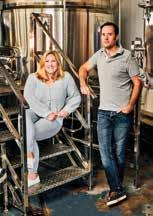
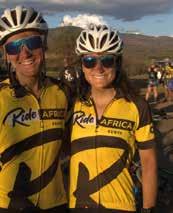
Exeter School Alumni (Old Exonians) This publication is produced by Exeter School and printed by the Brightsea Print Group. We welcome stories for consideration. Contributions may be edited for content and length. We welcome enquiries about advertising with us. Please get in touch with the Alumni and Development office for further details.
16 summer 2024
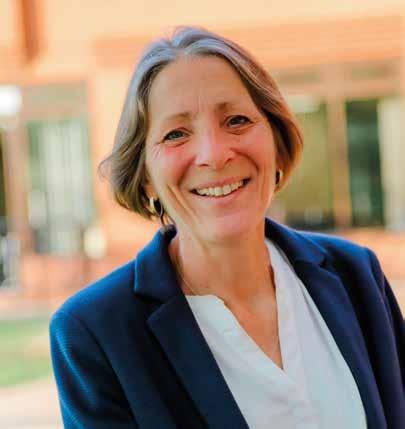
Welcome to the sixteenth edition of The 1633. I hope the magazine provides both a trip down memory lane and a small window into life at school today. I joined the teaching profession in the early nineties, when we could not have imagined the world that we inhabit as educators today. Whilst what we teach, our curriculum content, has not changed that much in some ways, the approach taken in a modern school context like ours, and the way in which we support teaching and learning today is positively science fiction in comparison to my early years as a teacher. In the last few years we have embraced technology that was designed for the
conference room and executive environments and moved to a fully embedded digital approach to learning. The crucial importance of mental health, wellbeing and the pastoral care, which has always been such an important fundamental of Exeter School life, has had its importance underlined. We continue to be reminded that community and connectedness is what keeps us moving, and that being optimistic, flexible and creative in our thinking allows us to continue to support and stretch our pupils’ learning and to keep them happy and safe.
I am now in my fourth year as Head here, still a newcomer to Devon – as I will be for the next two decades! Looking back over my first three years in post, what I have been constantly refreshed and inspired by are the many things about our school which, fundamentally, have not changed in spite of many external pressures. I know that alumni who left the school many years ago still find something familiar when they come back and visit us.
Of course, we are about to see a significant change at school as we move from ten houses to five. We are confident that this shift will enable us to best support our pupils in the context in which we educate them today and I look forward to keeping you updated on the progress of our new system.
Last but by no means least, I wanted to say a huge thank you to all those who have supported the school over the last year – who have come to an event, shared time and expertise with our pupils, made a gift to our bursary fund or supported us in another way. Our community of Exonians is invaluable to the school – thank you.
Once an Exonian, always an Exonian!
Louise Simpson – Head
This issue of The 1633 will take you not only to Kenya, New York and Thailand but also through many years of the school’s past. By my count, you will hear from alumni across the last 70 years of school life in this magazine –something that is very important to the Alumni and Development office team as we seek to engage as many members of the
school community as possible.
And speaking of engaging with you, I wanted to share that we are now very settled in the Exonian Centre, which also houses the school archive. We would be delighted to welcome alumni back to the school to have a look around.
I am continually humbled by the support alumni give the school
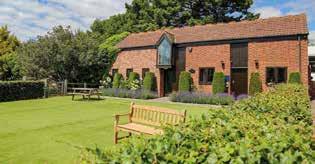
– thank you. I hope you enjoy this publication in return.
Alice Holohan – Director of Development and Alumni Relations
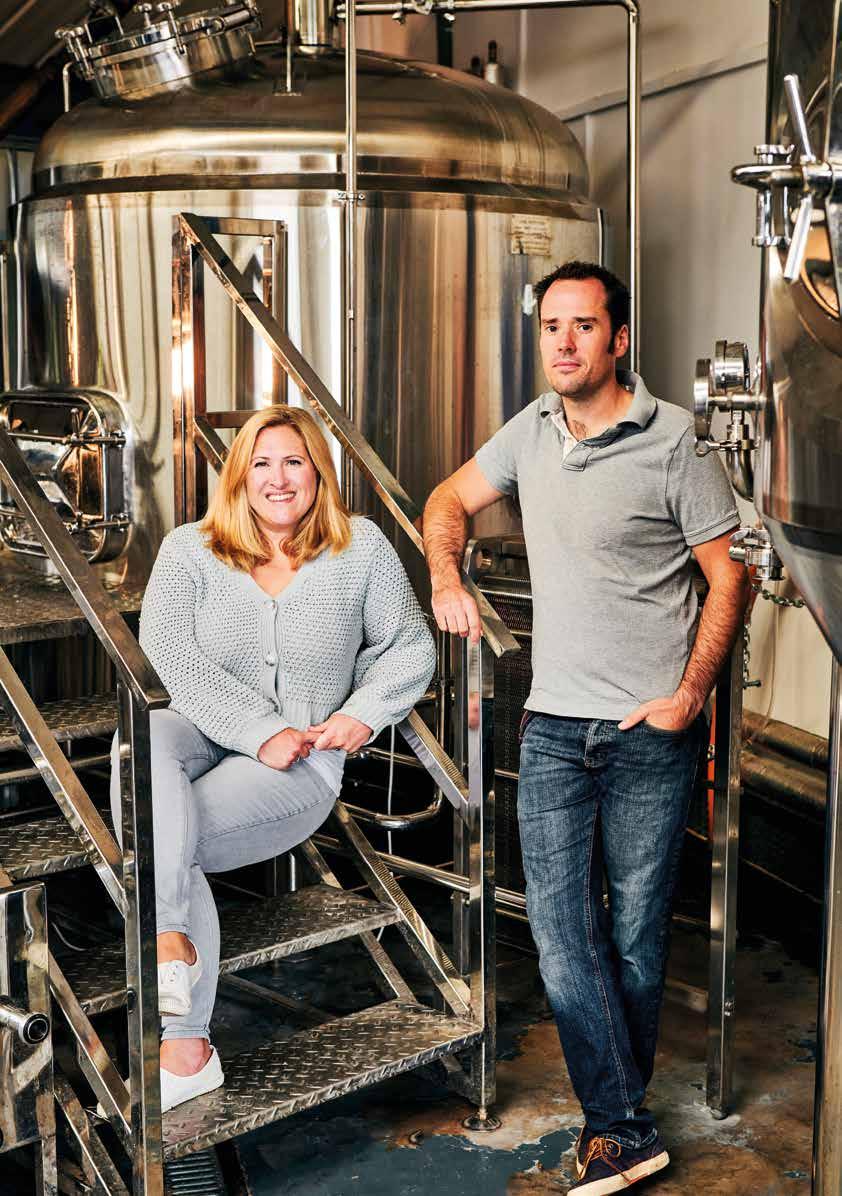
The 1633 caught up with some of our local alumni who run particularly delicious businesses.
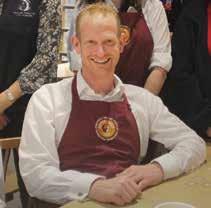
Ben Laxon is Managing Director of Otter Vale Products, a family run producer of award-winning gluten free chutney, preserves, sauces and mustards (otter-vale.co.uk).
The 1633: Tell us about the background of Otter Vale Products. Ben Laxon: My grandfather started off making pâté in Budleigh Salterton, with a recipe brought back from Strasbourg after the Second World War. The next generation, my parents, moved into chutneys and I’ve now taken on the business. We moved to Cullompton in order to expand and are now sold in lots of retail outlets, through our website, and also on Amazon. It remains a family business – my mum is still
involved in product development and has a very good lime pickle to be released shortly. Today we make chutneys, jellies, mustards, a gourmet range and gift packs.
T1: What does living and working in Devon mean to you?
BL: It’s a different way of life – we see our customers as people and I appreciate that kind of relaxed approach. Our staff are also really important to us (and hard to find!). Some have been with us for nearly 25 years and they’ve been there through thick and thin.
T1: What advice would you give to people wanting to start their own company?
BL: Do something you love – I’m passionate about the cooking and creative side of what I do. And do something you think is a good idea!
Ben Laxon
T1: Do you have a particularly fond memory from your time at Exeter School?
BL: I’ve got so many memories, from the prep school as well as the senior school. Something I remember particularly well is playing in the national hockey finals, held in Coventry in 1987. I also remember my time on stage in a few productions, even my one line in Joseph and the Amazing Technicolor Dreamcoat – “Was it Gad!”
T1: Did you have a favourite teacher?
BL: Martin Rogers (1979-2009) was head of my house, Collins. He told me, supported by my mother, that I wasn’t allowed to play sport again until my grades improved!
T1: What does it mean to you to be an alumnus of Exeter School?
BL: I think you’re very fortunate to be sent to this school and I’m grateful that my parents gave me the opportunity to come here. I still have a lot of friends from school and play hockey with many of them. A few years ago I took a photo of a room full of chutney and posted it on WhatsApp. Within a matter of hours friends had come and helped me clear it. The school opens doors – whether you walk through them or not is up to you.
T1: What do you do when you’re not busy running your business?
BL: I play a lot of hockey for ISCA, and some golf as well.
T1: What advice would you give to our pupils today?
BL: Do the things that scare you – you’ve much more to gain from trying than you have to lose from not.

Emily Peters (née Acland) grew up on a farm owned by the National Trust at Broadclyst, first run by her great grandfather. She established
The Udder Stuff in 2021, which now supplies fresh milk and milkshakes via vending machines (theudderstuff. co.uk). Emily and husband Mark live on his family’s dairy farm in Talaton.
T1: Where has life taken you since Exeter School?
Emily Peters: I studied food marketing at Reading University, choosing a lot of the agricultural modules because I grew up on a dairy, beef and arable farm. I then went to work in the agricultural team at Sainsbury’s, based in London. I was hoping for a dairy or beef project, but I got fish! It was actually really interesting and I learnt about things like modern slavery. I moved back to the farm in September 2019 and soon after came the pandemic. Although I was busy with calving, Covid gave me the space to think about what I wanted to do and how I could diversify the farm.
T1: Tell us about your business.
EP: I launched an Instagram page called The Udder Stuff to share information about what we were doing on the farm. After building up a presence on social media I launched my first vending machine in April 2021. The next stage of my business will be gelato – I’ve already bought a shepherd’s hut trailer to sell it from.
T1: What do you enjoy the most about running your own business?
EP: How varied it is. I once had someone ring me with a problem at the vending machine, and she asked whether she was through to reception. I thought, you’re through to reception, finance, logistics, marketing, everything… and I was feeding calves at the time.
T1: What does Devon mean to you?
EP: I love Devon, particularly the food scene and everything we produce here. It’s very convenient that I married someone from Devon!
T1: How important is it that people support local businesses?
EP: It’s hugely important to support local businesses and, in doing so, support the local economy. If you
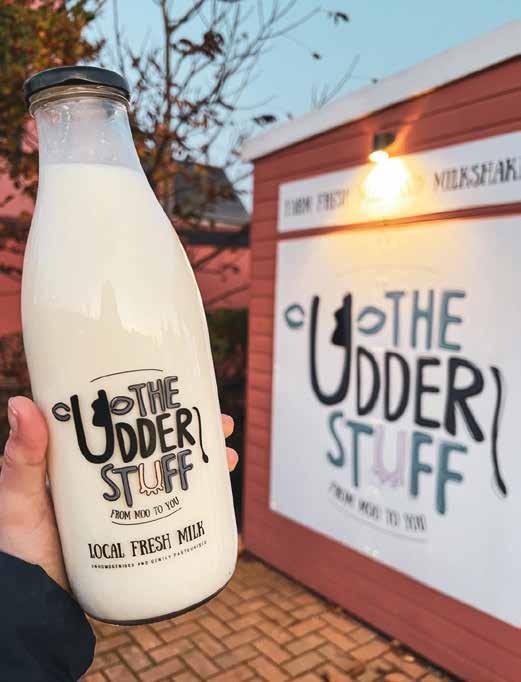
don’t eat British food, the British food market will disappear.
T1: Do you have a particularly fond memory from your time at Exeter School?
EP: I loved taking part in Young Enterprise and it’s been great to come back and help with the Young Entrepreneurs Club over the past year. I’ve really enjoyed seeing the pupils progress with their businesses, and it’s taken me back to my own time at school.
T1: If you could go back and speak to your younger self, what advice would you give them?
EP: To not take things too seriously, or worry about what other people think of you. Which is quite hard advice to follow, even now.
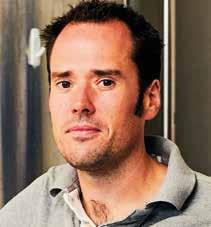
Russ Wakeham co-founded Two Drifters, a carbon negative rum distillery, with his wife, Gemma. Fellow alumnus, Mark Scoble (1991-1996), Gemma’s brother, is distillery manager (twodriftersrum. com).
T1: Where has life taken you since Exeter School?
Russ Wakeham: I went straight to the University of Bath and did a degree in chemistry. Then I took a little break and worked in insurance and insurance fraud. It was not really where I wanted to be, so I eventually went back to Bath to do a masters and a PhD in organic chemistry. In that time I met Gemma, who is also from Devon. After having our daughter we moved to Vancouver, where I held a post doctoral position at the University of British Columbia for a few years. That’s where the inspiration for Two Drifters came from. After returning to the UK I took up a fellowship at the University of Swansea, which was funded by the Welsh government and the EU. I investigated carbon capture and carbon storage. And then we came back to Devon because we wanted our daughter to grow up in the same environment we’d grown up in.
T1: What made you go into the business you’re now in?
RW: Vancouver has such a vibrant craft beer and craft distillery scene –you can go from block to block and experience completely different ideas of what beer could taste like. We were also inspired by the approach to business there – people set up businesses without the fear of failure. That fearlessness is infectious.
T1: What are the biggest challenges you’ve faced in running your business?
RW: We started the business in April 2019, so after around ten months the pandemic changed our market dramatically. Our products are very closely connected to the hospitality sector and so when that ceased we had to pivot. I held virtual tours around the distillery to keep us going.
T1: What advice would you give to people wanting to start their own company?
RW: Do so without fear – there’s something to be said for just starting, because you can always talk yourself out of things and there’s so much to worry about.
T1: Did you have a favourite teacher?
RW: My chemistry teacher, Mark Pettifer (1975-2007). He was a big inspiration, and I really enjoyed the way he taught and engaged with you. He was my A Level teacher and the reason I did chemistry at university.
T1: If you could go back and speak to your younger self, what advice would you give them?
RW: Relax a bit. I probably could have got to this point a bit more easily. Things will work out, maybe it’s that simple. There’s a lot to be said for just going for it and see what happens.
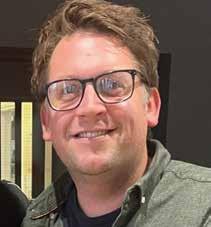
Will Maltby returned from London to purchase The Beer Engine, a pub nestled in the centre of Newton St Cyres (thebeerengine.co.uk). He runs it with his wife, Vicki. They have two sons – Max, currently at Exeter School, and Alfred.
T1: Where has life taken you since Exeter School?
WM: I went to Exeter College, then moved to London and worked in hospitality before moving abroad and continuing to work in the same sector. I had jobs in France, Italy and Canada. Cricket is my passion and I’ve watched England play around the world. I also had a transport and logistics company for about four years with a business partner. We used to drive all over Europe setting up exhibitions.
T1: What made you go into the business you’re now in?
WM: I worked at The Beer Engine when I was at Exeter School and have always had a soft spot for it. My wife, Vicki, and I were out for dinner in London and a friend told me it was for sale. And the rest is history!
T1: What does Devon mean to you?
WM: The county means a lot to me –it reminds me of my happy childhood. We’re raising our children in Devon, which is awesome.
T1: What is one of the most enjoyable aspects of running your own business?
WM: When you see a place that’s full of people and everyone’s having a good time, there’s no more satisfying feeling.
T1: Do you have a particularly fond memory from your time at Exeter School?
WM: I look back on my time here with a huge amount of fondness. I think I had a very good year group and quite a lot of us are still in contact. My best friends are all from the school – I speak to at least one of them every day.
T1: Did you have a favourite teacher, or teachers, and why?
WM: John Poustie (1990-2013) was a legend. He was without doubt the best teacher anyone could have. He was my house master and history teacher, as well as taking me for cricket and for rugby.
T1: What does it mean to you to be an alumnus of Exeter School?
WM: It’s taken on a new meaning since Max joined the school – I feel a real sense of pride that I went here. The school’s amazing now – it was decent when I was here, but it’s unreal now.
T1: If you could go back and speak to your younger self, what advice would you give them?
WM: School is really short in comparison to everything else, and you may as well enjoy it. Go on the trips, play all the sports, work hard… as soon as it’s done, you can never go back.
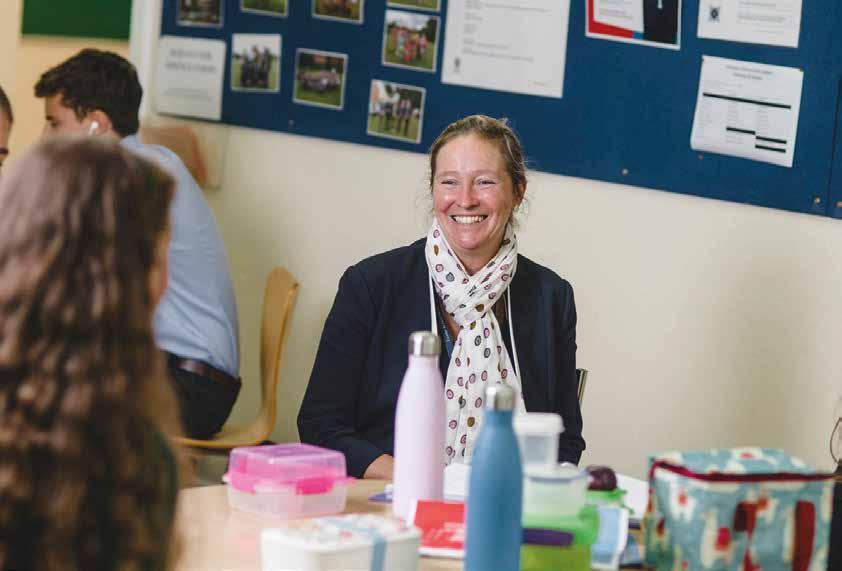
The 1633 caught up with a number of former Exeter School staff, learning about the roles they held at school and what they are up to today.
Ali Marsh (2001-2022)
The 1633: Tell us about your roles at Exeter School.
Ali Marsh: I started at Exeter School as a part time PE and games teacher, adding religious studies (RS) as a subject that I taught until I left in July 2022. After going full time, I became head of the PE department and girls’ hockey. I was then promoted to the role of Head of Sixth Form, a position that I held for 10 years.
T1: What are your favourite memories from Exeter School?
AM: Oh my goodness there are so many memories. I was so lucky to work in two amazing departments – we worked hard but had so much fun. The number of girls in the school increased every year I was there and it was a joy to see them participating in fixtures and beginning to achieve success not only in Devon but nationally. Being part of the staff group that took the girls to the national indoor hockey finals was incredible, as was watching the
boys win the national indoor finals at Whitgift.
I went on five amazing sports tours, including two to South Africa and Sri Lanka. I also learnt to ski with pupils on ski trips and went on an RS trip to Israel which was an incredible experience.
It was an absolute privilege to work in the sixth form for ten years, being there for the good times and sometimes sad, and most importantly seeing them grow in confidence and pursue their dreams. Leading cooking sessions with Julia Bawn (2015-2022) was a particular highlight – we managed to set off the fire alarm twice! The leavers’ service made me cry every year.
T1: What does it mean to you to be part of the Exeter School alumni community?
AM: I am very proud to have been a teacher and parent at Exeter School – it was my life for 20 years. My children were given so many opportunities here and have fond memories of their time at school. I continue to see OEs and their families locally which is a joy and it’s heartwarming to hear about former pupils’ adventures.
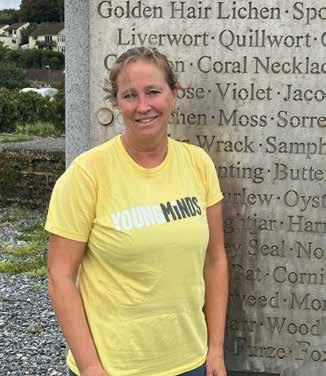
T1: Where has life taken you since leaving Exeter School?
AM : I decided to walk the South West Coast Path because I knew it would be a very strange feeling not to come into school on 1 September. So far I’ve raised £4,000 for YoungMinds, a charity close to my heart. I hope to finish the walk this summer.
I am a volunteer for Exeter City Community Trust as a parent liaison officer for girls’ football, and I drive minibuses to sporting fixtures run by the trust on a Wednesday afternoon. I also work in their holiday activity and food programmes. I work at a Euro Sports Camp in London every summer, working with students from all over the world.
John Jago (1949-1956)
T1: Tell us about your roles at Exeter School.
John Jago: I began my time at Exeter School as a pupil, having passed the 11 Plus exam. I then returned to teach PE and games, with geography, in 1966. I was teaching in
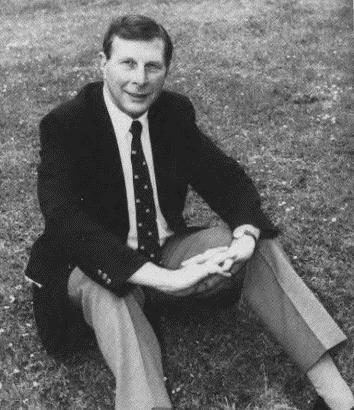
Wimborne, Dorset when I received a call from the Deputy Head, Bertie Bagnall (1929-1970) about the vacancy. I’d been away for ten years, but some of the teachers who taught me were still here – several still referred to me as Jago.
I particularly enjoyed activities outside of the classroom, which is why I became involved in fundraising. Many of the buildings and facilities at school came about as the result of fundraising. Appeals were supported by Old Exonians, parents, staff and pupils. My role as Appeal Director was a change from full time teaching and very challenging.
I was also given the opportunity to develop a more comprehensive careers programme at the school. Prior to this we had little careers guidance and no work experience programme. It was something I thought was really important. I soon became secretary of the Old Exonian Club, there was little chance of me escaping this role... continuing for 30 years, but I enjoyed the contact.
T1: What have you missed the most about working at Exeter School? JJ: The contact with people of all
ages. By playing golf, I have however kept in touch with former teachers – Ian Davis (1970-1974 and 19912002), Basil Selley (1958-1994), Ivor Clarry (1952-1979), Trevor Huxtable (1975-2004) and Pat Huyshe (1967-1992).
T1: What does a day in your life look like now?
JJ: My late wife, Julie, who taught in the prep school from 1968 to 1996; we would play golf together. We also followed Roger Winchester (1978-1983) on the European Tour. He would provide tickets for the tournaments, left at the gate addressed to Lord and Lady Jago. Amazingly, this allowed our camper van to be parked in the VIP area!
I play golf twice a week, I see my daughter. Life is quieter now. I have a garden and a house to look after, and two grandsons. They both like to help in the garden and they are rewarded as their grandmother would have wished.
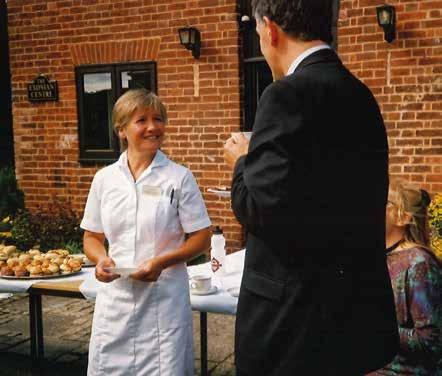
Michelle retired in May 2024; The 1633 spoke to her shortly before s he left the school.
T1: Tell us about your role at Exeter School.
Michelle Hendrick: I run the catering department with my team. I have a party system with a head chef, a sous chef, two chef de parties, food service assistants and kitchen porters. I have a great team and each of them is as important as the other to running a successful kitchen – I’m very proud of them. My role covers delivery of quality services ranging from teas and lunches to fine dining. I am responsible for menu planning which includes an extensive range of diets, purchasing, recruitment, staff training and appraisals, client and account manager liaison and collaboration. Health and safety is paramount to ensure food safety, the prevention of accidents or injury and good environmental health.
After achieving my City and Guilds qualification in French cuisine and
a first class Diploma in culinary expertise in 1982, I was appointed as deputy manager (head chef) at Exeter School and later promoted to manager. My ethos has always been to create meals from scratch using fresh food and my ambition was to change the perception of school food – I think that over the years I have proved that it’s not all lumpy custard and processed foods. I’m proud of the legacy I will be leaving the school and my successor.
T1: What was school life like in the early days for pupils and staff?
MH: It’s fair to say things have changed over time. When I took up post there were only boys at the school, and with a boarding house we had to provide catering seven days of the week.
The school has grown considerably and, of course, school leaders have changed. I have worked with four Bursars and four Heads. It’s been essential to collaborate well with each person and be flexible enough to meet the changes and developments they introduced. Things have evolved over time and I have always enjoyed that.
I am particularly grateful to
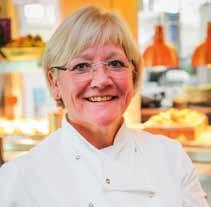
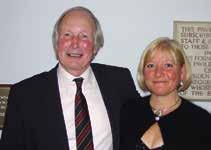
former Bursar Derek Williams (19942009) who was so compassionate when my mum was dying. I was terribly sad when he died.
T1: Where are you hoping life will take you when you retire?
MH: For me retirement is about the next chapter in my life. I intend to travel – I’m returning to Australia, and I’d love to go to South Africa on a safari and explore Scandinavia. My sister lives in Exeter and we will do lots of things together. I’m looking forward to having more time to spend with my dad.
I have a project planned for my garden which I look forward to realising. I’ve always loved drawing and will look forward to taking that up again. I also play the saxophone so having the time to do that will be fantastic – you never know, you might see me busking outside John Lewis at Christmas! The best is yet to come!
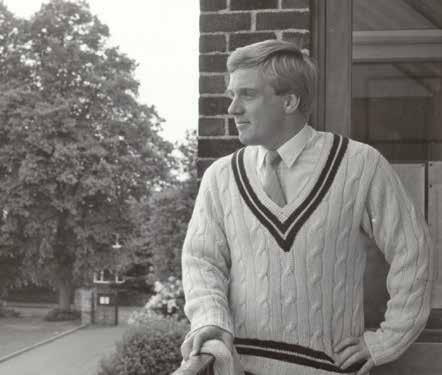
T1: Tell us about your roles at Exeter School.
Mike Wilcock: I joined Exeter School in 1986 as a recent graduate, primarily to teach languages but also to be in charge of cricket. Over the following 34 years, I undertook a variety of fulfilling roles, including Assistant Head of Careers, Deputy Head of Daw, then Head of Crossing House, master in charge of rugby, Head of Community Service and, towards the end of my career, master in charge of golf and new staff induction.
T1: Can you think of any memories that particularly stand out from your time in post?
MW: Although the classroom teaching was almost always enjoyable, the opportunity to take so many trips away has to be a highlight; short cricket tours to Herefordshire and French exchanges in the early years, followed later by language, history and ski trips further afield along with rugby trips
to Canada and Australia. Being in the right place at the right time also led to sharing special school sporting memories with a highly talented cricket XI in the mid-nineties and a run of four consecutive Devon Cup rugby finals at the turn of the millennium, culminating in an unbeaten season in 2002.
In my later years, looking at a list of new pupils, I tried to spot possible children of early pupils – occasionally I’d overhear ‘he taught my mum/dad’ – fortunately the words grandfather or grandmother were never uttered or, if they were, I never heard them!
T1: What does it mean to you to be alumni of Exeter School?
MW: I am adamant that you mustn’t lose total contact with your school and your formative years even if coming back may not seem right until a few years have passed. I have recently revisited my own school in Hertfordshire and will also be attending one of their “on the road” events and am looking forward immensely to that. You never know who you will meet until you are there and can be amazed to see how small the world is and how coincidences in life abound.

Although they haven’t asked me to say this, I really do urge readers of The 1633 to try and join one of the many events that are put on by Alice and the team. And once you sign up, use social media to get others to join too. You never know what a chance encounter may bring you.
T1: What does a day in your life look like now?
MW: Getting up and having the time to peruse The Telegraph online, sports pages first, with freshly brewed coffee is a great way to start a day.
Beach and dog walking, volunteering, sometimes doing proof reading and occasional translation work for a couple of charities all keep me nicely occupied in the mornings. Afternoons may involve a sea swim (in the warmer months) or a short drive along the A377 to Crediton, where I meet up with recent retirees Mike Porter (1986-2020) and Guy Willson (1990-2022) for a pleasant zig-zagging countryside walk carrying a bag with a few metal sticks and small balls in it – my years as master in charge of golf prepared me well for this excellent pastime!
OE grants of up to £250 are available to Exonians undertaking a distinct project that either: benefits your studies; benefits your community (local, national or international); or is used to help others. The 1633 caught up with just two recent recipients of a grant.

“Chudleigh Youth Centre is a dedicated facility which enables disadvantaged young people from the town and surrounding communities to socialise in a safe, secure environment. We hold weekly youth sessions for 12-18 year olds, with typical attendance of around 12. Advice, team challenges, cooking and discussions are included in the curriculum. We also hold weekly sessions for junior members (aged 8-11), with typical attendance of around 40. Crafts, pool, football, quizzes and computer games are available.
“These sessions are supervised by an experienced manager. He works alongside a team of adult volunteers and senior helpers (some of our older teenagers). Informal advice and support is provided on a wide range of issues, including: building self confidence, team working, CV compilation, housing, sexual health, the dangers of drug abuse and budgeting.
“Senior helpers have the


opportunity to commit to regular assistance with the weekly sessions for junior members. This volunteering brings benefits such as learning leadership skills, integrating as a member of a team and positively contributing to their CV.
“The youth services provided assist young people in a variety of ways and help individuals to relate to others and act in a socially responsible manner. Serious negative anti-social behaviours within the community are reduced and the youth centre provides an avenue for the voice of disaffected young people to be heard. Young people’s confidence develops over time, enabling them to be better placed to further their education or seek employment.
“I have been involved with the Chudleigh Youth Club/Chudleigh Opportunities Group for nearly 30 years, after being asked to join the committee by a neighbour. I lived in Dunsford for a time whilst I attended Exeter School, so was very aware that young people can be quite isolated in rural communities. Helping support our provision in the town is something close to my heart.”
“For the past 18 years I have been Chairman of the London Churches Refugee Fund (LCRF), a registered charity which I helped establish in 2006. The LCRF was created to enable twice yearly grants of up to £1,000 to be made to numerous refugee projects across London who were desperate for sources of funding to support their work with destitute asylum seekers.
“The refugee projects use their LCRF grant to purchase basic ‘life-saving’ essentials to give to the thousands of destitute refugees and asylum-seekers in London who come to them for help, providing them with travel and phone cards, hygiene packs, nappies, food vouchers, and for emergency payments. Our grants are also used to pay for coach tickets so destitute asylum seekers can travel to Manchester or Liverpool to hand in their asylum claims.
“All the work of the charity is undertaken voluntarily by the trustees (we have no staff and no office) so virtually every penny we receive in donations goes directly towards our twice-yearly grants. Since 2006 the charity has awarded 570 grants totalling nearly £500,000 to 96 different refugee projects in London, many of whom apply for a grant year after year.
“We rely hugely on people willing to set up a regular monthly standing order to the LCRF, on legacies, and generous one-off donations from individuals and businesses. We also raise funds from special collections and sponsored events, the sale of 5,000 LCRF Christmas cards every year, and an annual five-hour carol singing marathon at a major London station. The need for our grants never seems to diminish.”
Details about the work of LCRF, and how to donate, can be found at lcrf.org.uk.

George Ayres (1961-1993) and Dennis Dyson (1960-1994) have been part of the fabric of Exeter School for over 60 years. They may no longer frequent the school grounds, but from meeting back in the 60s as young teachers, they have remained lifelong friends. They told The 1633 about their memories of school life.
The 1633: Tell us about some of your early impressions of Exeter School.
George Ayres: I was teaching at Wallasey Grammar School, in the Wirral, and had a really super experience there. It was an educationally alert school and my colleagues were exceptionally good. I fitted in very quickly, and I thought that if I could do so there I might try closer to home, which was Torquay. Luckily, The Times educational supplement contained the announcement of the post at Exeter School, and I applied. I was rather surprised at how few others applied for the post – was this going to be a tough job? Who knows why there weren’t more applicants because it turned out to be the perfect post for me.
As well as being a history teacher, I was also assistant boarding house master for my first year. This provided me with invaluable experience of the school and how it ran. I knew the buildings very well indeed! We had a fantastic caretaker,
Ken Parker (1947-1988) who knew the school inside and out. I learnt a lot.
Dennis Dyson: I remember horrendous winters of snow, frost and so on. Ken Parker kept all the heating going and kept things moving by clearing snow. He could turn his hand to any problem that arose.
GA: I had a room in the main building, and I could look from my window to the chapel door. When the Headmaster wanted to address all the boys, he arranged them outside the chapel door. I could look from my window, to see who he was addressing – and what he was addressing them about!
DD: When George came out of School House he was commuting in daily from Torquay. I was in digs in Exeter; they treated me very well there, but it became too claustrophobic. At that time there were two other unmarried teachers at the school, Dick Snailham (19571965) and Ben Tait (1957-1971), and they shared a flat in No 5 Manston Terrace. Another flat came up in that house so George and I moved in there.
The 1633: What was school like for the staff and pupils in the 1960s?
GA: The Headmaster, Robin Hone (1966-1979), was exceptional. He had a vastly superior intellect. Having said that, there were a number of academically able teachers at the school, and some with interesting sidelines. Ivan Cole (1960-1971), Head of Music, was innovative in taking music outside of the school. He would organise a choir from the school and take them to various churches; in doing so, he showcased the school’s ability and scope in the local area. I think it was a really clever thing to do.
The staff common room used to be in what is now room one.
The common room gave certain responsibilities to new staff.
DD: Dick Snailham looked after the tobacco and I was responsible for wine. There was a company called the School Master’s Wine Club, through which wine could be purchased – it was later taken over by Avery’s in Bristol. Times have certainly changed.
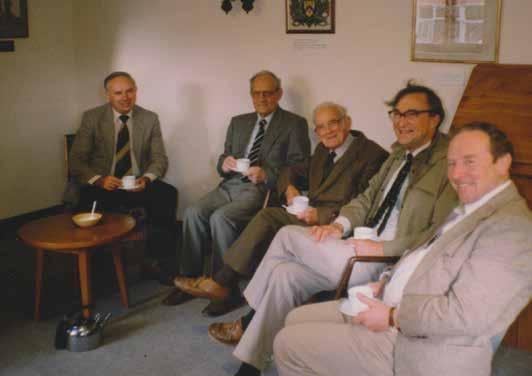
George and I are similar, in that we sometimes found it easier to get on with staff at school outside of the common room. We’ve already mentioned Ken Parker and there was also Hilda Mitchelmore (19571995), who sadly died recently. Hilda kept the Bursar’s office and other departments running smoothly; she was a tremendous administrator, keeping tabs on expenditure and making sure everyone knew where they stood. She was later awarded an MBE for her work with the Girl Guides.
GA: I was part of the CCF. My National Service had been with the Airforce and I got my wings as a navigator. I would take the boys to Exeter Airport, where they would gain experience in flying an aircraft. Military experience was an important aspect of Exeter School.
It is important for people to take an interest not only in their subject, but to understand the concept of the place as a whole. I tried to take part in every activity that I could.
One of the things that made working at Exeter School so enjoyable was its growth mindset. The fact we had a Headmaster’s house meant that
we could get quality Heads, because such good accommodation came with the post.
T1: George, you were the first housemaster [the position is now known as head of house] of Collins House, established in 1969. Tell us about your experience of founding a house.
GA: Having worked in School House for some time, I knew how a group of pupils and staff needed to operate. I therefore found organising my own house quite easy, relatively speaking. I knew what to expect, and what problems were going to arise before they arose.
DD: When George was made a housemaster, he was given permission to choose the first head of house [the position is now known as house captain]. That was quite a defining moment because he chose someone who, perhaps, most of our colleagues would not have chosen. The pupil was Nigel Walkey (19631970) and, if you look at Nigel’s illustrious career in the education sector, I think you can confidently say that George made the right choice!

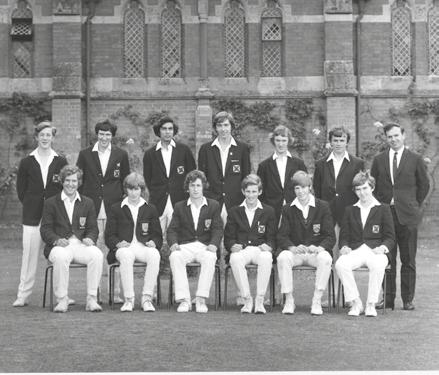

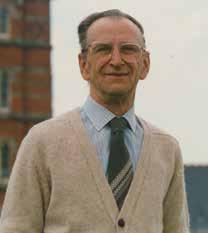
T1: Did you have a favourite event at the school, or time of year maybe?
GA: We felt that school trips were a really important experience for pupils, so for a number of years we took a group of boys up to Dennis’s neck of the woods, in Yorkshire. We did all sorts of things – some quite adventurous, including climbing Gordale Scar!
was forward-looking, always seeking to do more. It was what made going there every day so worthwhile.
A small example of this: when the assembly hall was built it was imagined not merely a hall where the Headmaster could address the school, but also a space that could become a badminton court, a stage and more. It added a real versatility and sense of potential to the place.
One of the things that really struck me was how outstanding my colleagues were, not only in terms of their knowledge of their subjects, but also as teaching practitioners. So, working with one’s able colleagues, was incredibly agreeable. You felt you were in a dynamic place that was going to achieve things.
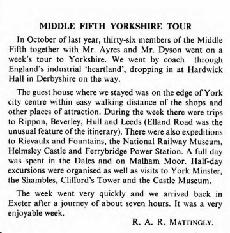


York Minster, the Jorvik Exhibition. We took them to a mine but weren’t allowed to go down it. At the end of our trip a man who worked there said to us that if he had known how wellbehaved our pupils were he would have taken the group down! They did us proud.
T1: If you hadn’t taught history and biology, is there another subject you would have liked to teach?
DD: No!
GA: I think you only have to look at my bookshelves, double-stacked with history books, to know how passionate I am about my subject.
DD: By the time I left the facilities were very modern indeed. Many of the pupils were very appreciative of what they were provided with. And other nearby schools, including St Margaret’s, Mount St Mary’s and Maynard, came to use our playing fields, or took part in the plays we put on.
T1: What does your connection to Exeter School mean to you?
GA: The experience of teaching at Exeter School has greatly broadened my understanding of what the task involved, not least has been a sharp, acute awareness of what I want. In other words, the opportunity for self-fulfi lment. Not bad for a place of work.
DD: We would stay in a hotel in York, right next to the racecourse. Of course, York is a superb centre for any educational trip. We went round the walls, the railway museum,
T1: What were the most significant changes that took place at the school during your tenure?
GA: Exeter School was a dynamic institution during my time there. It
DD: I have some very pleasing memories from my time at Exeter School. We used to get our meat from a butcher down in St Thomas. His son was one of the pupils we took to Yorkshire, and his father told us that he insisted that the whole family should go there on holiday to experience all the things he had done. It’s small things like that, which give you the feeling you’ve done something right. And we’ve been invited to the weddings of so many of our former pupils over the years. To feel that they would like us to be there… it’s quite something, isn’t it.

The 1633 heard from just two of our exceptional Exonian sportswomen.
When people say it’s ‘in the blood’, this is certainly true of Exeter School alumna Emma Corney and her masterful handling of a cricket bat. Emma’s love for cricket started at an early age, playing against her dad and grandad in the garden. Emma’s dad, Russell Corney (1981-1988), was a valued member of the cricket team throughout his time at Exeter School. Emma followed in her father’s footsteps and was part of the school
cricket team and in 2022, Emma and her teammates won the National Under 18 Championships for Devon. Emma says this has been one of her favourite moments to date in her career, “winning with teammates that I’ve played with since I was eleven is a feeling that’s hard to describe”.
After school, Emma moved to Australia in order to play more cricket and, in turn, avoid a UK winter. It was the right decision, “the standard was better than I thought it would be, and there were so many girls playing at the club”.





Whilst there, Emma lived with the coach and his family in Melbourne, and enjoyed the experience of living abroad.
Emma currently plays for Western Storm, formed in 2020 when Somerset County Cricket Club, Gloucestershire County Cricket Club and Glamorgan County Cricket Club joined forces. They created eight teams of female cricketers from the Southwest and Wales.
Emma admits she still can’t believe that she’s being paid to “hit a ball around a field” and is making the most of the world-class training, coaching and playing opportunities that the club provides. Western Storm takes a holistic approach to supporting its players, providing a nutritionist, physios, strength and conditioning coaches and a sports psychologist.

This level of cricket is a far cry from Emma’s early days playing in her back garden, trying to outdo her brother, Sam Corney (2017-2019). Perhaps this is where her competitive nature started to take shape, but it was on the pitches at school that her love for sport developed. She cites Director of Sport, David Gibson, as a great supporter of girls’ cricket and
also remembers Andy Mason (20042023), former Director of Sport, very warmly – “he always made you smile, no matter what”.
Even with Emma’s talent for cricket, the fact she’s a young woman entering what is predominantly a man’s sport has proved challenging at times, “when I started playing cricket, there wasn’t really a girls’ team to play in. I’d be one of two girls in the team, which was challenging in terms of changing rooms and the social side of things. At higher levels of the sport, the men still get a lot more funding than the women and a lot more exposure than us. Of course, they bring in more money, but many of the games in the Women’s Ashes series sold out – things are going in the right direction”. These challenges certainly don’t seem to faze Emma.
Emma now has her own words of wisdom for women entering the world of sport, “keep enjoying it – if you’re not enjoying it, there’s no point. Enjoy being with your friends, take every opportunity that comes, no matter how daunting it might be. Anything could happen”.
It’s hard to believe that Sarah Trahair-Williams only started her running career a few years ago, given that she has already ticked off three of the ‘six majors’, the world’s most prestigious marathon races: London, Berlin and Chicago. She hopes to tackle Tokyo, Boston and New York in the future, and with equally dedicated wife Lamorna at her side, conquering the majors seems well in Sarah’s sights.
An unyielding approach to training explains why a charity running challenge at the beginning of the pandemic has evolved into in a marathon personal best currently standing at 2:54:09. Sarah’s day starts at 5am with a run at home, “we live in the middle of nowhere, so when I’m in Bristol the treadmill is what I have to use as soon as it hits winter. When I’m in London it’s loads easier because I can run
around Hyde Park, St James’s or Battersea Park”. Her fi rst big race was the Newport Wales Marathon… and she has gone from strength to strength since then.
Sarah’s time at Exeter School was certainly family-orientated: her father, the late Brigadier Derek Williams (1994-2009) was Bursar; her mother, Pamela Williams (19952001) worked in the school shop and the box office; and her brothers, Roland Williams (1995-2001) and twin brother Guy Williams (19952006), were pupils here. When asked where her love for sport comes from, Sarah indicates that from a young age her dad was her “biggest champion” and he himself had a great love for sport, especially rugby. Sarah’s childhood interests were horse riding and hockey. She remembers former PE teacher Ali Marsh (2001-2022) fondly, and recalls that, if she couldn’t fi nd a friend to play squash with, another former PE teacher, Will Hanson (2004-2007), would often challenge her to a game.
Sarah reveals that Paralympian Tanni Grey-Thompson has been another inspirational fi gure in her life. She remembers when she was awarded the Lower Sixth sports science prize, she used the book tokens to purchase the sportswoman’s autobiography. It’s undeniable that Tanni Grey-Thompson has shaped Sarah’s own resolve; when suffering with infl amed tendons in her ankle, meaning she needed crutches before the Chicago Marathon, Sarah moved her training to the bike and found a way around her inability to run. Sarah acknowledges that her unyielding approach can make living with her a challenge. She recalls the eve of the Paris Marathon falling on her wedding anniversary, and having to prepare for the next day rather than mark the occasion! Her wife, Lamorna is very patient and Sarah clearly values her dedication as a spectator – she is there for every race. The 1633 looks forward to following Sarah’s progress in the future.
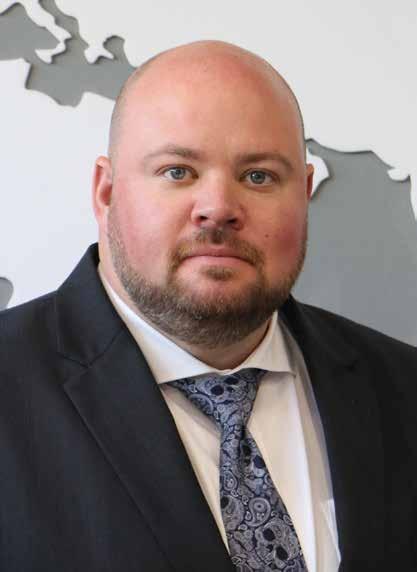
Busy is a word that could be used to describe James Kemp, and yet his joy for life and enthusiasm for his work is palpable.
Following James’s time at Exeter School, he attended Swansea University to study philosophy. He quickly moved into the education sector, taking a job as a teaching assistant at Stover School.
After undergoing teacher training at the University of Exeter, James taught at Colleton Primary School, which he enjoyed immensely. He did, however, experience “itchy feet” and decided it was time to “shake things up a bit”. So his next teaching job took him to Lima, Peru for two years, before a desire to experience other cultures meant a move to Thailand. He is now Head of the British Learning Centre: Paradise Park (based in Bangkok) and Deputy Head of the British Learning Centre: Pattaya. James not only teaches A Level English and history, but also English as a foreign language (EAL) as well as delivering teacher training, and advising on international accreditation for schools in Thailand.
The school day starts at noon, so mornings are spent with his wife and two children, often exploring the beautiful national park near their home in the province of Chonburi. At the start of the school day James leads a meeting with admin staff, during which the organisation of lessons, messages from parents, other meetings that day and student assessments are all discussed. James is also involved in sales and marketing meetings, and he meets with teachers and his business partner too. The evening is
“Mr Wilcock means a lot to me to this day… I remember at times he pushed me, and I knew it was because he always thought I could do better.”
dedicated to teaching, either EAL or specialist 1:1 lessons.
James explains that, owing to working across two schools, much of his time is spent on the motorway and away from his family. The school is open seven days a week, and so James has not had a weekend to himself for some while. However, he is an avid Exeter Chiefs fan and will set an alarm to watch his team in the early hours. He also returned to his love for chess during the pandemic.
James’s drive to work and devotion to teaching can be traced back to his time at Exeter School. Giles Trelawny (1993-2024), Head of History, was a huge inspiration for James, who says of his former teacher: “he played a huge part in my decision to become a history teacher. He had a passion for his subject and an honesty in the way he taught. He was always the teacher and always in charge, but he never talked down to us. I never felt patronised by him, and I’ve taken that into the way I teach”. Whilst at Exeter School, James was head of Crossing House [the position is now known as house captain], and Mike Wilcock (1986-2020) was his housemaster [the position is now known as head of house], “Mr Wilcock means a lot to me to this day… I remember at times he pushed me, and I knew it was because he always thought I could do better. He was very understanding but there was no time for excuses”.
It is wonderful to hear how much Exeter School means to James, “I love to follow what’s going on with the school. Living very far away, it keeps me connected to the UK, to Devon and to Exeter. I get a great sense of pride when I see how well the school’s doing. It gave me a good grounding and good values, in terms of the importance of hard work and teamwork, that I’ve taken with me into both my career and my life. It means a lot to me”.
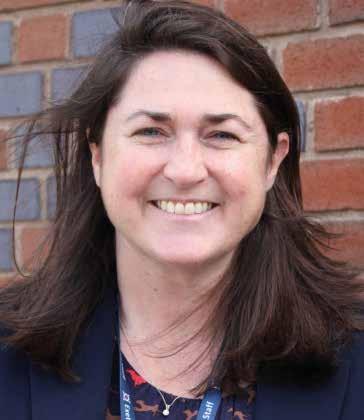
Aoife-Jane Culley has been teaching history at Exeter School since 2009.
Ihold a number of roles at Exeter School; as well as teaching history in the senior school I also coach sport, and since 2019 I have been Head of Townsend House. In September I will move into one of the new head of year posts, with responsibility for the Upper Sixth. At the moment heads of houses manage and look after the academic and pastoral development of the pupils in their house. The pastoral element of the role is one of the most rewarding aspects of my work. Along with Fiona Tamblyn, Deputy Head of Townsend House, I run initiatives such as a weekly café; we make ourselves available to pupils who want to have a chat with us, and we always have a good supply of chocolate biscuits! From September the emphasis on academic and pastoral support will shift to the new head of year posts, and I’m looking forward to continuing this aspect of my role.
I get up at around 6.20am and leave the house by 7.20am. My two children are at Exeter School so, after picking up one of their friends en route, we all travel
A
into school together. We’re here by about 7.45am, and I go through emails and plan for the day ahead. As head of house I try and touch base with the sixth form every morning and the other tutor groups once or twice a week.
Lessons start at 9.00am on most days and games take place on Wednesday afternoons. In free periods I’m either marking, writing reports, ringing parents or emailing other staff. I am on duty once a week at lunchtime, and also run the history society on a Monday lunchtime, along with other members of the history department.
“At lunchtime, people might come and see me, or I mark
“I feel strongly about the school; it’s a great place to work, with a supportive community of staff, pupils and parents.”
and catch up with lesson planning. The time I leave school varies depending on my after-school activities, or those of my children. Usually, I work for an hour or two in the evenings.
When I’m not at school I really enjoy spending time with my family, and we have a puppy who loves the beach. Weekends usually involve sport; I play tennis for Lympstone Tennis Club and my two sons are very sporty too. As a family, we enjoy walking and cycling and come the summer we head off in our campervan.
I feel strongly about the school; it’s a great place to work, with a supportive community of staff, pupils and parents. I really enjoy seeing pupils develop as they progress through the school, as well as meeting them again when they come back as alumni – although that makes you feel old!
I love the fact my children are here. I have a son in Third Form, who is really enjoying life in the senior school after a brilliant time in the junior school. My colleagues there really got the measure of him and pushed him to develop where necessary – I was really impressed. It is a very caring and holistic environment. My younger son is now in Form One and having a similar experience.
Pupils have excellent opportunities here and can take part in a diverse range of activities. There is a real focus on wellbeing and the pastoral development of pupils; the support they get from all of our staff is phenomenal. We have a great balance between academic work and sport, music, art, and drama. We tailor everything towards pupils, and we help them develop many different aspects of their character. Exeter School is a great school, and one I am proud to be a part of.

An Exeter School education can change a life. We open doors for bright pupils from disadvantaged backgrounds, ensuring they have the opportunity to really flourish.
Nearly 400 years ago we were created to educate boys in Exeter, irrespective of their financial background; our founding charter instructed teachers to see all pupils as ‘one & the like’. And in the twentieth century the Direct Grant and Assisted Places schemes enabled us to educate children whose families could not ordinarily send them here. At times, around 25% of pupils were here on free places.
Today, just over 1.5% of our pupils receive a free place. We want to change this, awarding more bursaries to deserving pupils. To do so, we need your support.
Make a gift and change a life.
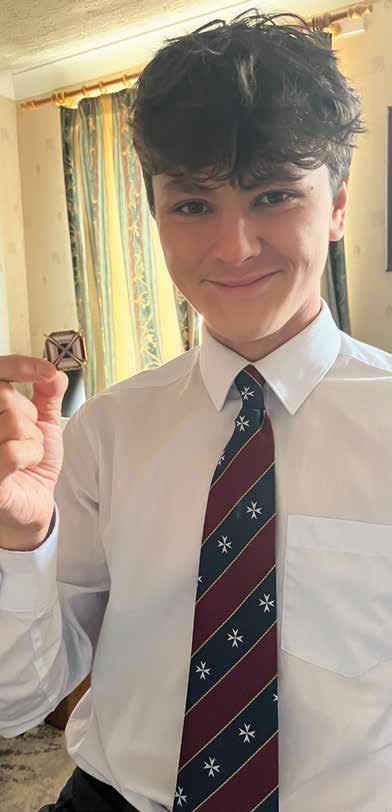
“My journey to Exeter School started in 2021. I left state school with average grades and was very fortunate to join the sixth form at Exeter School thanks to the bursary programme. The range of opportunities available to me was absolutely incredible: I became a senior prefect, ran the History Society, joined the MedSoc, set up a University Challenge club, took up badminton.
“I was also able to go abroad for the first time, to Ireland with my history class. It was incredible to see the site of the 1916 Easter Rising in person instead of a textbook – and I finally have a passport!
“These were opportunities previously unavailable to me, and I absolutely loved taking part in them. Despite taking humanities based A Levels, with help from MedSoc and extensive one-to-one career
“Despite taking humanities based A Levels, with help from the MedSoc and extensive one-to-one career support, I ended up getting a place to study medicine at the University of Manchester.”
support, I ended up getting a place to study medicine at the University of Manchester, where I am now. I hope to one day specialise in anaesthesiology or geriatrics.
“I’m really enjoying university. The course is great but most exciting of all, I have represented Manchester on University Challenge! You will be able to see how I got on this summer.
“I am the first in my family to attend university. My mum, who is a cleaner at my primary school, loves to brag to my former teachers about how far I’ve come. It makes me very proud to say that I went to Exeter School.
“I owe where I am now, and where I will be in the future, to my experience at Exeter School, and I would like to personally thank all the donors that have made my dream possible via the bursary scheme.”
The school has ambitious aims to increase our bursary provision and make ourselves even more accessible. To do this, we will need the support of our community.
Every gift we receive, of any size, will help to change a life.
You can find further information on how to give to the school at: www.exeterschool.org.uk/support-us/.
Alice Holohan, Director of Development and Alumni Relations, is always happy to discuss your giving to the school and can be reached at asah@exeterschool.org.uk or +44 (0)1392 458 940.
Any photographs, unless otherwise stated, are for illustrative purposes only
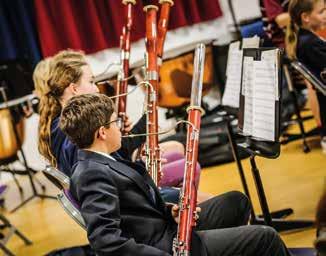
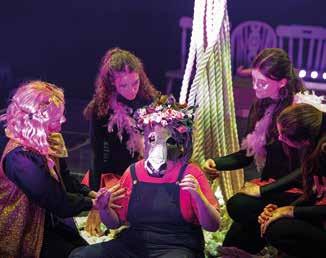
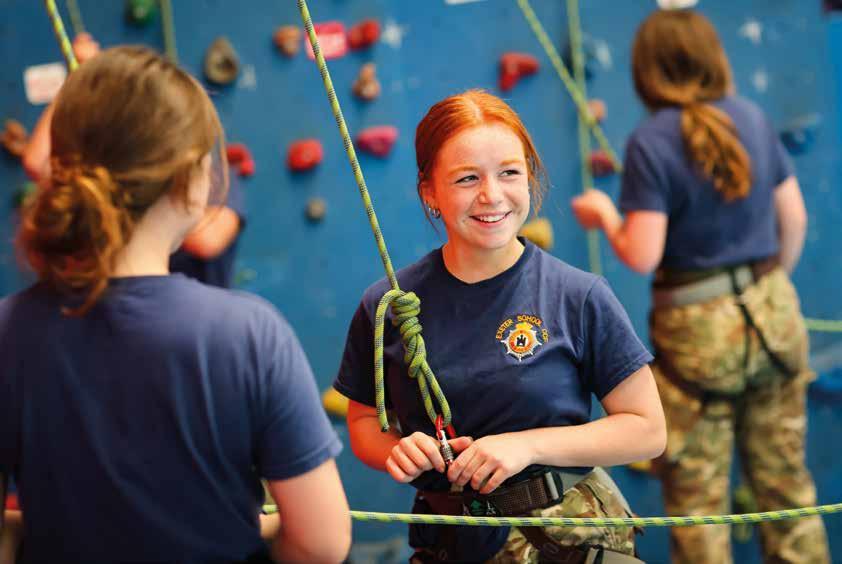

Readers of The 1633 might remember an interview with Head, Louise Simpson, in our summer 2022 edition, which introduced the concept of character education at Exeter School. Bethan Rose, Assistant Head (Character), sat down to tell The 1633 about its progress since then.
The 1633: Could you remind us what character education means?
Bethan Rose: Our purpose as a school is to encourage our pupils to aspire, and to enable them to flourish. We want our young people to emerge with more than simply excellent academic results, and leave Exeter School as well-rounded
individuals who are ready for, and ready to contribute to, the wider world. Character education provides the framework to achieve our purpose. It is a means of formalising the personal and social development of our pupils through the intentional cultivation of our school virtues: to welcome and serve; to inspire
and challenge; to endeavour and collaborate; and to act with kindness and integrity.
T1: Is this something new for Exeter School?
BR: Not really, no. I’m sure that many alumni will feel they gained much more from Exeter School than their exam results. What is new is our approach. We want to formalise the methods we use to develop pupils’ characters in order to more clearly showcase what we are doing and enable us to uncover areas where we can do more. We’re really lucky at school today – we’ve got such a fantastic, enthusiastic body of staff who go above and beyond to develop pupils holistically. I’m sure this is something many alumni will recognise, even if they don’t call it character education.
T1: What does character education look like at Exeter School?
BR: The University of Birmingham, a leading centre of character education in the UK, has set out a really useful structure that we use at school. They outline character education in terms of character caught, character taught and character sought.
Character caught is about school

programme is embedded in our timetable; on Friday afternoons Middle Fifth and Upper Fifth pupils can take part in DofE and CCF, and the sixth form has additional options to explore. We also make sure that our clubs and societies offer pupils enough variety and that there’s a character rationale behind our trips. I ran our first character trip to Poland in December 2023, taking pupils to Auschwitz in order to learn about the Holocaust and why people are so passionate about conserving the site. There were opportunities to ask questions of the very well-informed guides, reflect on what they had seen, and share their thoughts. Our co-curricular offering encourages pupils to think about service, leadership and giving back to the community.
T1: What are the highlights of character education at school?
culture. We make sure character is both visible, for example, by displaying our virtues in every classroom, and embedded, by ensuring that our virtues are reflected in our policies, our expectations of pupils and the rewards that we give. For example, we have thought hard about speech day; can we celebrate those pupils who have demonstrated excellent, thoughtful behaviour as well as those who have received a string of top grades?
There are two strands to character taught. Firstly, we have introduced character and practical wisdom lessons for pupils in the Lower Fifth to Upper Fifth – these lessons are based on the Socratic method of learning, encouraging pupils to adopt an enquiry-based approach and debate issues relevant to their own lives, from relationships and healthy eating to cancel culture and artificial intelligence. Secondly, we have encouraged teachers to reference school virtues in their lessons. As a religious studies teacher it’s perhaps more straightforward for me because moral discussion features so heavily in what I teach. It’s more challenging in some subjects, such as maths, where it simply wouldn’t be appropriate to spend time on discussions of different ethical views. But all subjects taught at school are related to ethical questions to some degree and so, for example, when we took pupils to Bletchley Park we encouraged them to think about how Alan Turing’s work was impacted by the morality of the time he lived in. And by character sought we mean giving pupils their own opportunities to develop character through participating in trips and co-curricular activities. Our Friday8
BR: I’m always inspired by my enthusiastic and deeply-committed colleagues – they really want to make a difference for our pupils. Ten Tors is just one example of this – staff give up whole weekends, battling the elements on Dartmoor throughout the winter, just to enable pupils to have this incredible experience and to see their characters develop as they persevere in the face of adversity. And another highlight, of course, is seeing pupils really grow in confidence, particularly through programmes like the CCF. It’s wonderful to see the older pupils leading the younger ones and by Upper Sixth the leadership skills many of our pupils have developed are incredible.
T1: What is the future of character education at Exeter School?
BR: I want to embed our virtues really firmly within the school and be explicit about cultivating them within our pupils. I also want to see character education reflected in all of our policies. The goal is for character education to be second nature to the staff and pupils and I look forward to seeing our pupils become leaders in this field as well, modelling character to younger pupils and teaching them its value.
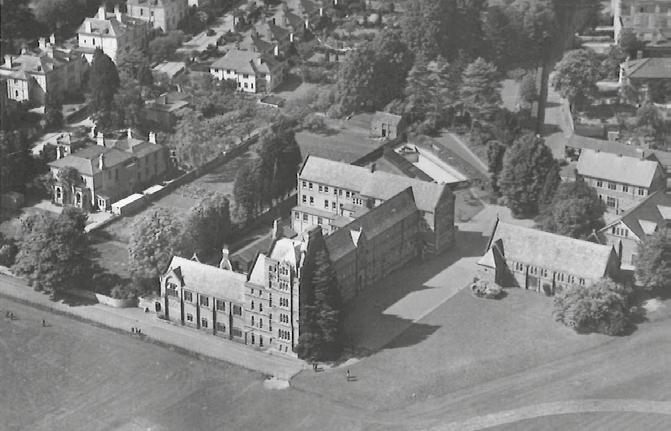

Today the Exonian Centre houses the Alumni and Development office and the school archive – alumni are always welcome to visit. These photos document changes to the site over many years.

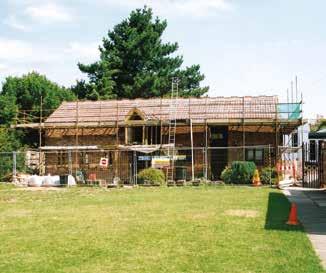
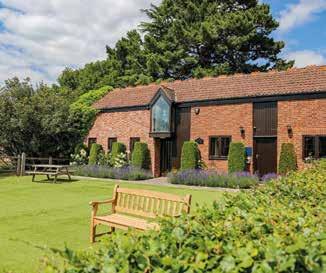
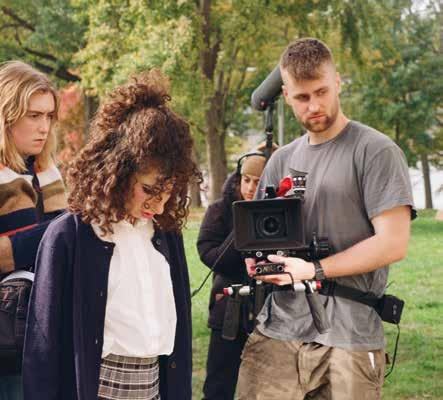
The 1633 catches up with Owain Astles, an English man in New York, and behind a camera.
Filmmaker Owain finds himself in extremely good company. He is currently undertaking the Graduate Film Program at the Tisch School of the Arts, New York University (NYU), where so many cinema greats have gone before him; Martin Scorsese, Angelina Jolie, Spike Lee, Oliver Stone, Ang Lee, Elmer Bernstein, Anne Hathaway… to name but a few.
Following his time at Exeter School, Owain went on to Bristol University to study theatre and Spanish. Whilst at Bristol, he bought his first camera, and it soon became clear that he had a flair for film. During his first year at university, he made Sleeping Rough, a docudrama that follows three individuals from the homeless community, authentically portraying the realities of living on the streets. Owain has also taught filmmaking in prisons, mainly in HMP Wandsworth and HMP Isis. His projects undoubtedly focus on the more marginalised groups in society.
Having decided that filmmaking was his vocation, Owain was keen to study at NYU – widely acknowledged
as one of the best courses in the world. After a gruelling admissions process, the course started in August 2023. Owain describes the course as “super-intense” with a typical day lasting 12 hours. He wakes at 7.30am, and a 45-minute journey from his apartment in Brooklyn across to Manhattan gets him to NYU for 9am. His studying draws to a close at 9pm, but these long days didn’t come as a surprise to Owain – prior to the course he had approached alumni who forewarned him of this.
To manage the intensity of the course, Owain states that he goes to the gym “because I find that really helps with my mental health. NYU has a few gyms and there’s one five minutes’ walk away, it really helps me to keep my energy up”. Owain also makes the most of the community that he has happily found, saying of his thirty-six strong cohort of fellow students, “I feel very lucky to be doing something that is so intensely enjoyable, we’ve got a really good

community, our year is very engaged, very passionate, very supportive of each other and very kind, so I feel lucky to be around people who are like that”.
When asked about his time at Exeter School, Owain warmheartedly replies, “one of the best things about school is the group of friends I’ve taken from it, we’re still very tight and see each other at least once a year”. He also remembers teachers warmly, citing Mick Latimer (2010-present) and former Headmaster Bob Griffin (2003-2020) as inspiring his love for languages. Owain also speaks fondly of Andrzej Chrupek, drama assistant (20032014) and Stephanie Chrupek, Head of Drama (1990-2014).
Caption styele
Following time with his classmates, Owain swiftly returns to his studies, but does comment that the course won’t always feel quite so rigorous, “it will always be intense but not in terms of classes, they’ll be more time for writing or to be on set filming. The next several years are about creating a volume of work and finding collaborators to work with throughout your career”. For someone with Owain’s passion for filmmaking, the course seems like an ideal choice as students hope to make their first fully funded feature film following their time at NYU.
“One of the best things about school is the group of friends I’ve taken from it.”
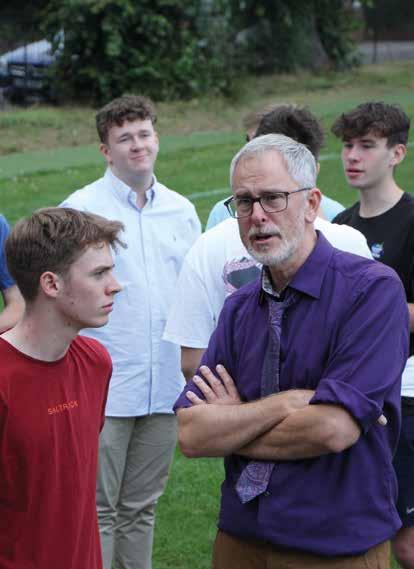
It’s been wonderful to welcome so many alumni and friends back to school this academic year, as well as gathering further afield. You can find dates for next academic year’s events on the back cover of The 1633 or on the school’s website at exeterschool.org.uk/alumni-events.

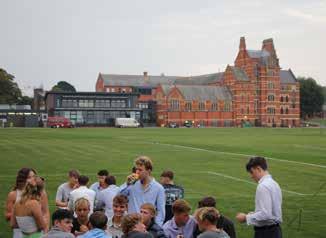
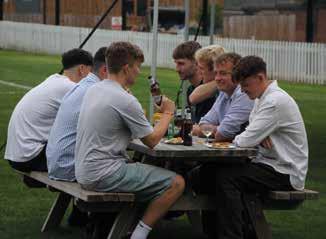


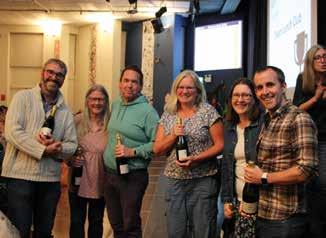
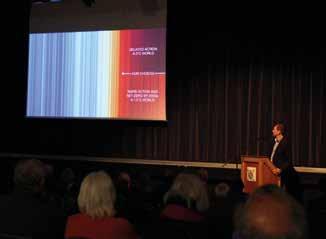


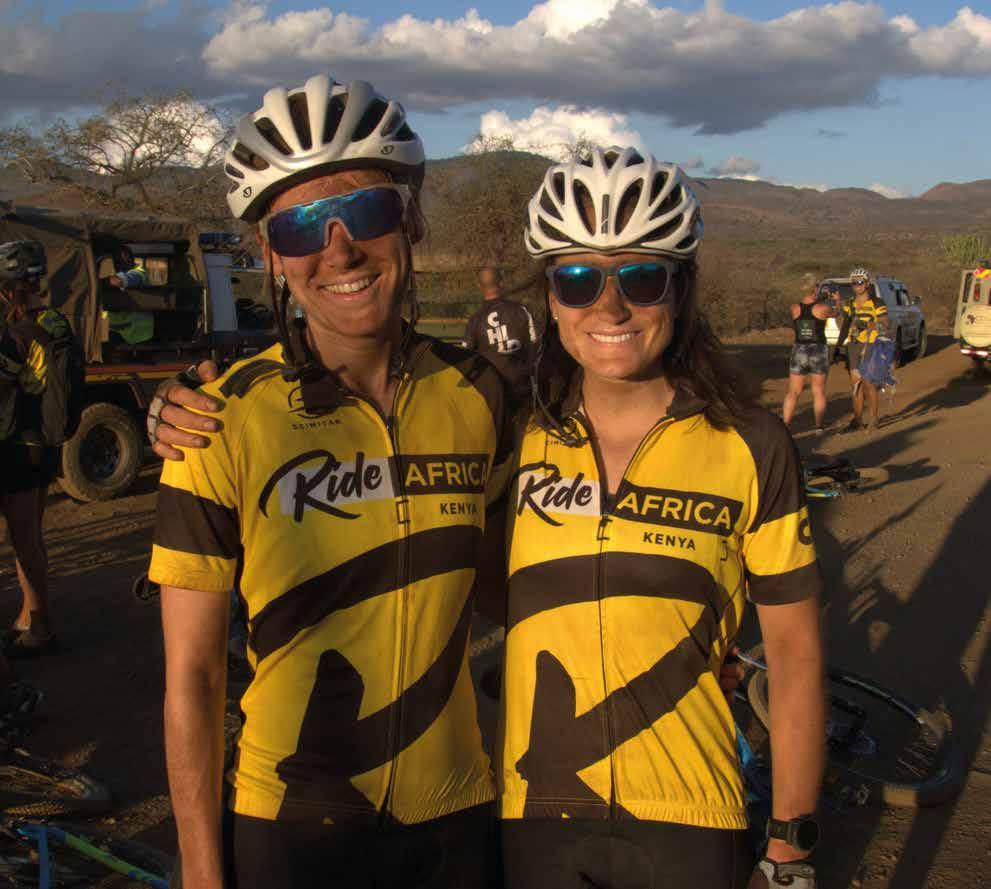
In November 2022, Lucy James (2004-2011), Income Manager for Child.org, was in the foothills of Mount Kilimanjaro when she happened to bump into Amelia (Millie) Davies (2000-2007) and Lindsey Poustie, widow of John Poustie (1990-2013). Lucy got in touch to let The 1633 know how this fortuitous chance meeting came to pass.
Sitting on the roof of an eight-seater Jeep with the whirr of a drone above and messages from Kenya Wildlife Service buzzing in over the radio, a family of elephants to my left and a peloton of cyclists strung out behind me, was perhaps my favourite ever day in the office.
I was leading a team to deliver a ground-breaking five-day, 500-kilometre cycle challenge trekking through three of Kenya’s most epic national parks. The event, Ride Africa, is the brainchild of Child.org, an international charity working to champion maternal and child health and provide lifesaving, life-changing support to pregnant women, communities and local
health authorities in Kenya.
I joined the Child.org team in 2021, inspired by the team’s collaborative yet ambitious approach to solving issues at the heart of sustainable international development. Ride Africa is our flagship fundraiser, and its impact for the charity has been transformative; it has raised millions to help make pregnancies and births safer.
Taking on a challenge like Ride Africa can be daunting –whether you’re cycling it, or in my case organising it and therefore responsible for everyone’s safety (I’ve never had to put ‘buffalo stampede’ in a risk assessment before). So, a little reminder of home and a friendly face can make a huge difference. It was a joy to discover that three of us there, in the baking heat of southern Kenya, had a common connection: Exeter School.
I was joined in Kenya by Lindsey Poustie and Millie Davies, both seriously impressive cyclists who made the 500-kilometre journey look almost effortless. We shared a sweaty, dust-covered photo to celebrate the end of day one at the entrance of Tsavo West National Park (home of the infamous man-eating lions of Tsavo!).
Together, Lindsey and Millie – along with 37 others – cycled from Amboseli, in the foothills of Kilimanjaro, to the Indian Ocean
“It was a joy to discover that three of us there, in the baking heat of southern Kenya, had a common connection: Exeter School.”
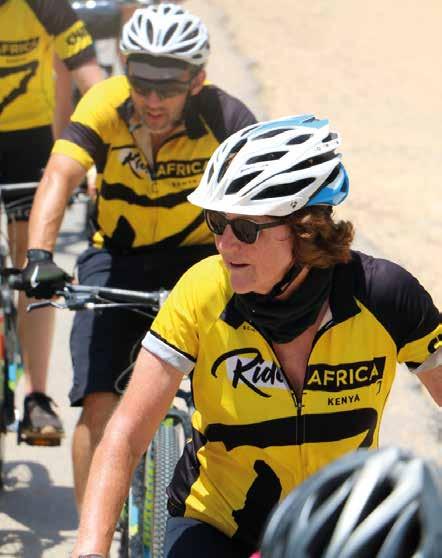

coastline at Mombasa. We passed elephants, buffalos, giraffes, zebra, lions and more. Tackling heat, potholes, acacia-thorn related punctures and racing a setting sun, we had possibly the greatest safari trip ever. I am so grateful to have shared the trip with Lindsey and Millie, who made me feel at home
despite being thousands of miles away.
The dust has now settled, but the legacy of the trip lives on – together we became the first group to cycle en-masse in Kenya’s national parks. We also built a brilliant partnership with Kenya Wildlife Service, supporting their conservation efforts and showcasing a greener alternative to the classic game drive. Most importantly though, we raised over £400,000 which will help to keep pregnant women and their babies safe, alive and healthy.”
To find out more about Child.org visit www.child.org and www.rideafrica.org to read more about this one-of-a-kind cycle challenge.
We are keen to share news from across the Exonian community – please keep us updated with your activities, whenever you may have left the school and whatever you have done since then.


Kate Ledgard and the fi rst ever all-female crew of Maiden will go down in history, having taken gold in the 2023-24 Ocean Globe Race. The women were not only racing, but also sailed with the purpose of supporting girls’ education around the world through The Maiden Factor Foundation. Maiden was fi rst skippered by Tracy Edwards MBE, who led an all-female crew in the Whitbread Round the World Race in 1989/90. Tracy was forced to
sell Maiden at the end of the race, but later brought it back to the UK when she learned the 58 ft yacht had been abandoned in the Seychelles. After extensive restoration in Southampton, The Maiden Factor was born.
Kate has a strong sailing background, with both of her parents being keen sailors and her childhood spent sailing around Plymouth Sound. Kate is described as a “fi ne athlete” on The Maiden Factor website, which goes on to say, “as a qualified doctor, she is sure to be an asset on board – albeit the hope is that she is not called on too often!”.
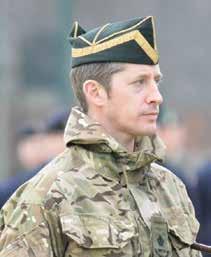

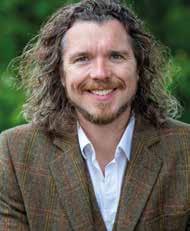

Rory Cox is Director of Impact and senior lecturer in history at the University of St Andrews. He has recently had his second book published, Origins of the Just War: Military Ethics and Culture in the Ancient Near East, which explores the history of ethics in war. Rory spoke to The 1633 and answered a few questions about his love for history, life in Scotland and his time at Exeter School. For the full story please head to the school’s website at: exeterschool.org.uk/news/.
“I was an Army Sixth Form Scholar, along with John Evennett (1987-1994) and Luke Roberts (1989-1994), and I was also head of the CCF. After school I went on to gain a university cadetship. I served in the Queen’s Royal Hussars for 10 years after leaving Sandhurst, including tours of Kosovo, Iraq and Afghanistan, leaving as a major. I represented the Army at slalom kayak having spent many happy evenings and weekends paddling with Pete Scott (1986-2011) on the Exe and Dart. I also represented the Army triathlon team and have completed around 30 marathons including 8 ultramarathons ranging in distance from 50km to 200 miles – Dick Scarrott, former teacher of physics (1970-1994), lunchtime running and Woodbury Common are to blame for sowing that seed! Ten Tors with John Spivey (1981-2001) also gave me a love of the moors and mountains.
In 2010 I completed my PGCE and bumped into John Davidson (1976-2018) at the Royal Geographical Society Conference. To fi nd out more about Richard, visit exeterschool.org.uk/news/.

Adam Feest KC was appointed as a Circuit Judge by Queen Elizabeth II in September 2022, based at Winchester Crown Court. Adam previously belonged to 3 Paper Buildings (3PB), one of the UK’s oldest chambers. Find out more about Adam – exeterschool.org.uk/news/.

Graham Clark, Visiting Fellow at Cranfield University School of Management, has released his latest book, More Than Good Enough: Insights Into Leadership
Kevin is a science and economics adviser, and has long been associated with Z/Yen, which is the City of London’s leading commercial thinktank. Kevin has been publishing papers on the consequences of burning fossil fuel reserves. To read more about Kevin, visit the Z/Yen website (https://www.zyen.com/ about/our-team/dr-kevin-parker/).
We would like to thank David Harrison for pointing out a typo in last year’s feature, Forgotten Words, which included words collated by our archivist Kevin White (1954-1961) that are no longer used at the school. David got in touch to correctly point out that tankers was in fact jankers –a term used in the army to describe minor punishments. Thank you, David!
David also had this to say: “Kevin White’s collection brought back memories. I am more or less of his generation, having been at the school from (including the prep) 1946 to December 1955. My career was prolonged by taking the old S-level one year after A Level and then the “7th term,” at the end of which came the college scholarship exams – effectively then the entrance exam to a college (in my case Exeter!) and thus the university”.

Nigel got in touch with The 1633 after spotting himself in last year’s edition, as a member of one of the two 1961 Ten Tors teams. He shared a fantastic picture taken at the 1962 event with us. “It was taken when we arrived at the finish. The team was made up of six of us who had all done the 1961 Ten Tors. I have no idea what route we took, probably different from the previous year.”
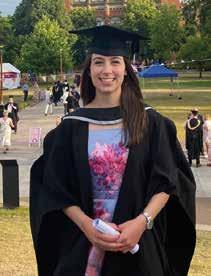
Sophie got in touch with The 1633 to share her experience of the NHS scientist training programme (STP). We have included a snippet below, but for the full story please head to the school’s website at: exeterschool. org.uk/news/.
“After leaving Exeter School I went on to study physics at the University of Birmingham, graduating in 2022. I found the degree interesting, however I quickly realised that I wanted to work in a field where I would be able to use my knowledg to help people. Thankfully, I attended a careers talk in my second year where I heard about the world of medical physics, which quickly piqued my interest! I was lucky enough to secure work experience in the radiotherapy department at the RD&E over the summer of my third year and did my master’s project on proton microbeam radiotherapy.
“I applied for the NHS STP in my final year at university and secured a place on the radiotherapy physics specialism at University Hospitals Birmingham NHS Foundation Trust. Radiotherapy physicists are involved in ensuring that treatment is both safe and effective. The role is varied but involves treatment planning, performing quality control on equipment and commissioning new equipment.”
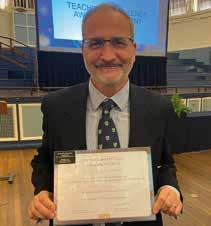
Laurence Leaver has received a Lifetime Achievement Award from the University of Oxford. Laurence was recognised as part of the Medical Sciences Division’s teaching excellence awards.
Green Templeton College shared that Laurence has received this prestigious accolade “in recognition of a long-term dedicated commitment to teaching pre-clinical and clinical students and passing on his extensive and invaluable experience in general practice to over 21 cohorts, and for his willingness to go beyond what might be reasonably expected of a GP tutor.”
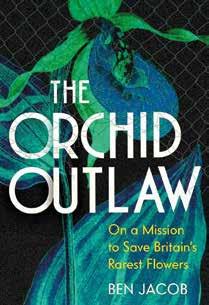
Amalia Vitale, who trod the boards many times in school productions, starred in the 2023 Christmas special of Death in Paradise, which aired on Boxing Day on the BBC. Amalia played the part of Hannah O’Brien.
Last year, Amalia also starred in Pandemonium at Soho Theatre, written by Armando Iannucci and directed by Patrick Marber. Brian Logan, the Guardian’s comedy critic, wrote “the whole company is terrific, with Amalia Vitale as the lagoon-dwelling health secretary a standout.”
Amalia will feature on our screens again later this year in new Channel 4 comedy, Big Mood. Channel 4’s website describes the comedy as “a vivacious and rebellious portrayal of female friendship when infi ltrated by the complexities of a serious mental illness.”
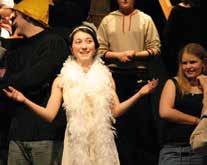


Paul received the freedom of the City of London in June 2023, in recognition of over 30 years spent working as a town planner preparing plans for the City of London. ”.

Ben’s book The Orchid Outlaw: On a Mission to Save Britain’s Rarest Flowers was published in 2023. Ben says, “after Exeter school, I stayed in education, gaining a doctorate in literature at the University of York. I then spent several years teaching English abroad, which allowed me to indulge my interests in travel and orchids. Returning to England, I focused on saving some of Britain’s native orchids, an experience I have written about in The Orchid Outlaw ”.

exeterschool.org.uk/news/ time helped me enormously with the
Captain Joe Welch attended our Exonians in Oxford event last November and was interested to hear about developments in character education at the school. By his own admission he did not enjoy the academic aspect of school life but said that the values the school cultivated in him were enormously useful in his long career as a shipmaster. We have included a snippet below but for the full story please head to the school’s website at: exeterschool.org.uk/news/ “Although academically I did not achieve well at Exeter, I did fi nd a most suitable career. I have to say that the character building, the sense of values and the camaraderie that was evident in School House at that time helped me enormously with the heavy responsibilities of a shipmaster. So well done Exeter School.”

Last year, Ian was appointed as a new lay canon for Exeter Cathedral. Ian brings experience from his post as churchwarden of St Michael’s Church, Heavitree and his successful career in fi nance, which has spanned 35 years. Exeter Cathedral has said “he will bring considerable expertise to the deliberations of Chapter.”
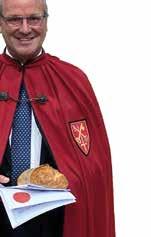

“I very much enjoyed speaking at your EdFest in February 2023 [our education conference, which focussed on character education in 2023]. The free school I founded continues to go from strength to strength and is the most oversubscribed state funded senior school in Surrey.”

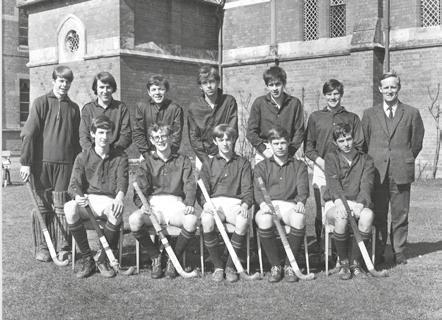
Richard got in contact with the Alumni and Development office and asked if we could put him in touch with his old schoolfriend, Mark. We were very pleased to do so and are delighted to report that they are planning to meet up for the fi rst time in 55 years.
Mark has lived in the USA since 2000 and now resides in Michigan, whereas Richard is much closer to home, living once again in Exeter. The pair plan to meet this summer in the UK, and the Alumni and Development office hopes to welcome them back to the school.
When speaking of what helped


form their friendship, Richard and Mark are in agreement, “I think it was our mutual aptitude for sports that brought us together, plus the obvious fact of our being boarders at school, which was a world within a world. In the course of everyday school life, we were hardly paragons of virtue”, Mark states. To which Richard replies, “I would concur with what Mark said about why we became such fi rm friends, maybe with the addition that we were both a bit subversive toward the system, and when you are boarding there is a lot of system to be subversive towards!”.
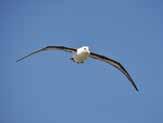
“It was an honour to receive the Freedom of The Falkland Islands, along with many thousands of fellow veterans who fought to regain the islands in 1982: a generous act by the Falkland Islands Government.
“For those of you who also like to roam in wilderness under clear, unpolluted skies, you might for example consider visiting Saunders or Carcass Island: the former, site of the fi rst British Settlement in 1765; also home to one of the largest colonies of blackbrowed albatross in the world – a majestic bird with an eight foot wingspan. The wildlife there is extraordinary, spread across two main islands and a further 776 smaller ones.”
Readers of last year’s edition of The 1633 may remember a short piece on the publication of The Forgotten Front: The Macedonian Campaign 1915-1918 by Jon Lewis OBE. In the piece, Jon cited his former teachers Eric Halladay, Dick Snailham and George Ayres as inspirations for his love of history. Dick Snailham spotted this piece and wrote to the Alumni and Development office enclosing a book that he thought Jon might fi nd interesting, Two Vagabonds in Servia and Montenegro. Alas, by the time Dick’s letter reached the office it had parted ways with the book, and much searching in post office depots and the school’s bursary could not unearth it. The Alumni and Development office tried to source the book online, but given that it was a rare Penguin paperback, we could not fi nd a good edition in the UK. We thought that there was nothing else to do until Alice Holohan had a conversation with Jamie Mackay (1957-1968) in which he mentioned he was Editor of the Penguin Collectors Society. Alice recounted the story of the missing book to Jamie, who generously sent his very own copy to Jon. Jon was very grateful indeed and sent copies of his book to Dick and Jamie respectively. A wonderful example of the supportive nature of the Exonian community!
Do you have a story to share with the Alumni and Development offi ce? We are always delighted to hear about the school’s history or what you’ve been up to since leaving Exeter School. Please do not hesitate to get in touch –alumni@exeterschool.co.uk or call 01392 307080.
The school is sad to announce the passing of the following Exonians. Owing to space restrictions we are not always able to publish a full obituary in The 1633 – in those instances (indicated ★) the entire piece is featured on our website at https:// www.exeterschool.org.uk/category/obituaries/.

P(Raleigh, 1951-1961) 1943-2023 (Goff, 1961-1968) 1950-2024 ★
eter Berridge unexpectedly passed away in November 2023. It had been his 80th year, and to celebrate he had flown his glider in the French Alps. Peter’s love of flight started at Exeter School, in the RAF section of the CCF, with flights on the extraordinary rubber bandlaunched glider that was shot down ON the playing fields. (Yes, this really happened!) His life-long love of gliding found its final home in his key roles guiding the Vale of White Horse Gliding Club.
After school Peter started his career in the paper and printing businesses, in Bristol and London, culminating in owning several print shops in Oxford and the Cotswolds. He was renowned for the quality of his specialty work, delivering highquality design products for Liberty’s, the BBC, the Cunard Line, and for some very demanding 70s record cover designers. Peter was very active in the Old Exonians, particularly the London branch, where at one dinner he and I bumped into Margaret Thatcher on the stairs of the St James Club. Peter was a man who kept his friendships and several old boys attended his funeral.
Peter will be sorely missed by his wife of fifty-three years, Ruth, and by his sons Jamie and Jonathan and grandson Zola, as well as by his brother John (1954-65). He was a loving, kind man who took great delight in life and family. And in soaring the skies above us.
John Berridge (1954-1965)

Prof Christopher Burgoyne passed away unexpectedly after a happy Christmas with family, on 2 January 2024, at the age of 73. He was a school governor (1992-2007) and longterm liaison between the school and the University of Cambridge, assisting with numerous applications in the intervening years.
Chris was born in Kent, the only son of an engineer and a telephone exchange operator. The young family moved to Topsham to be closer to wider family members in the early 50s. Following Exeter school, Chris took up a place at St John’s, Cambridge, chiefly to read civil engineering, but also to engage in the traditional activities of rowing and forming life-long friendships.
Having met his wife Vanessa (a Homertonian) in Cambridge, the couple moved to Ellesmere Port, Cheshire, for a few years to work for the council in exchange for funding for Chris’ further study. This allowed them to relocate to London in the late 70s where he studied for an MSc and later a PhD in structural engineering at Imperial College. An expert in
the analysis and reinforcement of concrete structures, Chris started lecturing at Imperial in 1980 staying until 1988.
With a young family, he relocated to Cambridge where he was appointed senior lecturer in the Structures group within the University’s engineering department, and a fellow of Emmanual College. Here, Chris further extended his research into all kinds of related engineering disciplines: the physics of bicycle wheels, deployable structures, artificial hips, ultra-strong tethers for stratospheric balloons and kites, and lightweight chimneys for carbon capture. As a fellow of the Emmanual he raised the profile of engineering at the college by taking a very active role in the admissions process.
Throughout this time his influence extended into industry. He was an advisor on the use of plastic fibres as lightweight reinforcement materials, and the design and maintenance of bridges across the world (including the world’s first entirely plastic bridge in Aberfeldy, and the pre-2012 Olympic revisions to the Hammersmith flyover).
Prof Burgoyne was a member of the Institute of Civil Engineers and a Fellow of the Institute of Structural Engineers, amongst other professional bodies. In 2015 his efforts were recognised and he received a personal chair (professorship) from Cambridge, and in 2017 his research into the analysis of the Coventry Cathedral won him the IStructE’s paper of the year.
Prof Burgoyne’s peers remember Chris as erudite, fair and supportive of colleagues. This extended to his treatment of students and applicants –firm, but always fair. If you could use your brain you would gain his respect, regardless of background or level of education.
Chris is survived by wife Vanessa, children Emily, Nicholas and Charlie, and five grandchildren. All of whom miss him daily.
Nicholas Burgoyne
Stephen Derek Buller (1954-1959) 1941-2024
Gareth Gunter (Crossing, 1965-1971) 1954-2022
Ewart Hopkins (Raleigh, 1947-1954) 1936-2023
David Hough (Raleigh, 1952-1956) 1938-2024
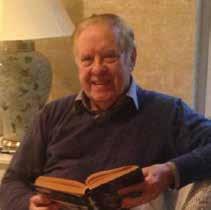
(Daw, 1947-1954) 1936-2024 ★
Harold Burnett QC was born in Exeter in 1936 and lived in Ide throughout his childhood. He and his identical twin, Donald, both attended Exeter School on a scholarship. Both represented the school in cross country, with Harold at one time breaking the school record for the mile. When called to perform National Service following school, Harold and Donald joined the RAF and the Joint Services School for Linguists, where they learned Russian from scratch, became interpreters and later received a commission. Both matriculated at St Peter’s College, Oxford in 1956, and represented the university against Cambridge in cross country running, for which they were awarded a Blue.
At university Harold read jurisprudence, gaining multiple scholarships and graduating with a double first in his degree. Intent on becoming a barrister, he joined Gray’s Inn, where several further scholarships ensued. He spent a happy year at the University of Sheffield as an assistant lecturer in law and then joined Pembroke College, Oxford, as an Acting Fellow. He was called to the Bar
Guy Boxall (Daw, 1956-1964) 1945-2024
William Harrower (Daw, 1956-1961) 1945-2017
in 1962 and joined 4 Paper Buildings in the Inner Temple in London, first as a pupil, then as a tenant. He developed a solid reputation as a commercial litigator and was known for mentoring junior barristers as well as his mischievous sense of humour. He was particularly active in helping pop stars and sporting personalities take action against unscrupulous managers. After a successful practice as a junior, he was made Queen’s Counsel in 1982. He joined the Western Circuit and occasionally sat as a circuit judge, presiding over both criminal and civil matters. He was also appointed a Deputy High Court Judge and occasionally sat in the High Court of Justice in civil matters.
Towards the end of his career, and in the wake of the demise of communism in Russia, Harold joined the newly formed Anglo Russian Law Association, a not-for-profit company, the purpose of which was to introduce English and Russian lawyers to one another. He held office as a director for seven years, six of which he acted as president. On one occasion, he opened a meeting of the association at the British Embassy in Moscow in Russian, resulting in him being asked if he spoke English. This particularly tickled him. Harold started to wind down his practice at the Bar in 2002 and he finally retired in 2005, moving to Devon in 2012.
In retirement, Harold was as industrious as he had been during his career. He completed the novel that he had started in 1985; he published an anthology of poems, translating the majority from the original German and Russian; he pursued his lifetime hobby of philately, bought shares in several racehorses, and travelled extensively.
Harold married Peggy, a New Zealander, in 1971, though they separated some years later. They had two children, Guy and Sophie, both of whom are now married with children of their own. He was much loved and will be tremendously missed.
Guy Burnett
Richard Dawson (staff, 1991-2014)
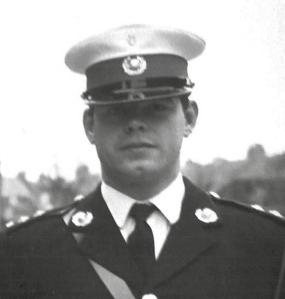
(School, 1961-1968) 1949-2023 ★
Lieutenant Colonel David Graham, who died on 29 June 2023 aged 73, joined Young Officer (YO) Batch 38 in September 1968, one month short of his nineteenth birthday. Standing tall, fresh-faced and a notably sharp dresser with a liking for tweed, David was a recently liberated pupil from Exeter School, already intimately familiar with Exeter and its immediate surrounds. This brought distinct advantages when it came to early social forays ashore by him and his Batchmates.
David was a reserved, serious but self-assured and physically strong individual. Naturally curious, blessed with an organised and enviably quick mind, he was an understated character but with an acerbic wit and wickedly dry sense of humour. He was a keen observer of people and disdainful of self-promoters and posers. Irreverence came naturally and he delighted in the ridiculous of which, from the perspective of a YO in the early weeks at the Royal Marines Commando Training Centre, there seemed an endless supply.
The Corps’ decision to cycle as many General List officers as possible through the Far East before the planned draw down ‘East of Suez’, guaranteed David’s first appointment as a troop commander in L Company, 42 Commando.
Leadership came naturally to him, and his marines responded positively to his consistency and no-nonsense style. A pragmatist, and a discerning judge of character, and in many ways wise beyond his years, he was refreshingly ‘old school’: principled, funny, measured, unafraid of hard work or of voicing a different opinion. Socially adept, he loved a party and was a generous host.
On completion of YO part III training in 1971, he was appointed to 41 Commando in Malta, and then qualified as an assault engineer: an inspired decision, as his new specialisation played to his strengths and his love of anything mechanical: model trains, cars, trucks – building things or blowing them up – it mattered not. He was in his element.
David met his wife to be, Judy, whilst in Malta. Judy’s parents had to plan a wedding for a future son-inlaw they had never met! They were married in December 1973.
David will be very fondly remembered by those who served with him at home and overseas. A hard-bitten field soldier and ever his own man; candid, caring and incredibly loyal, he was on the one hand quite conventional in his attitude and beliefs, but on the other constantly scanning the horizon to find a smarter or more efficient way to do things. Professionally, the future was what interested him much more than the past. He left a largely anonymous and yet indelible mark on the Corps’ operational capability which, perhaps, history will one day properly record and acclaim.
David chose a private funeral and his ashes were scattered at sea with close family present. David is survived by his wife, Judy, son Robert living in Yorkshire and daughter Caroline near Exeter.
Full obituary published in the Royal Marines’ Regimental Magazine (The Globe and Laurel).
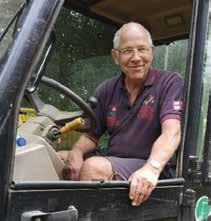
(Crossing, 1961-1964) 1947-2023 ★
Andrew Goodridge emerged from Exeter School as a larger than life, generous mover and shaker who won huge respect in the Devon farming community as well as the national and international hockey world. He was called Billy by his family for acting the sharp shooter, Billy the Kid. Billy/Bill remained with him through school and hockey, but when it came to work he was Andrew.
Andrew was born in Dawlish in 1947 and raised at Gatehouse, the family farm. At Exeter School he thoroughly enjoyed the school cadets where he learnt useful disciplines and a sense of duty. He excelled at sport, captaining the cross-country team and, perhaps uniquely, being awarded his senior colours whilst still a junior.
He studied agriculture at Bicton before making his career in agricultural supply management and agronomy. He fulfilled a lifetime ambition in 1994 when he bought his own farm, South Duryard, on his birthday. An advocate for UK agriculture, its farmers and young farmers, Andrew was a Chairman of Exeter Young Farmers, Exeter NFU
Branch and Devon representative on the South West Regional Arable Committee.
Andrew was also a dedicated fundraiser for many charities. One of his triumphs was a 24-hour ploughing marathon in aid of Vranch House, the special education school in Exeter in 1974. This won two Guiness Book of Records entries: greatest acreage ploughed in 24 hours and fastest time for ploughing a single acre. He was an advocate for the Royal Agricultural Benevolent Institution.
He was supported by Catherine whom he had known and worked with since 1980. In the early 1990s he realised that Catherine was the love of his life and he finally managed to persuade her to marry him in 2004 on his birthday. He delighted in the company of his nephews and nieces, and his great nephews and nieces. He was particularly generous with ice cream – his own favourite treat.
He started playing hockey at Exeter School and then played for Dawlish, Torbay, Devon Dumplings, Devon and the West, but the team that ran through his veins was Isca. Bill joined in 1973 and was one of the remarkable squad who created the “Decade of Dominance”.
On the pitch Bill was a loud, cat-like, aggressive, quick-off-hisline keeper who dominated his D. Joe Mullins famously said we had a goalmouth now we have a mouth in the goal. Naturally, Bill took that as a compliment. He was also a proud England LX member and an England masters player at over 50s, 60s and 70s, travelling the world to tournaments and getting to the finals of almost every one.
Thank you for your energy, imagination, zest, drive and planning; for inspiring farming clubs, communities, hockey teams and players to give their best, improve and have fun. Goal mouths and changing rooms the world over will be forever quieter.
A life well-lived, rest in peace my darling, love Catherine xx
Mike Tucker, Mike Harris, Tim Underhill, John Yeoman


(Staff, 1969-1983) 1943-2023 (Buller, 1943-1954) 1936-2020
Peter taught French at Exeter School from September 1969 until summer 1983, when he moved to be a boarding housemaster at Blundell’s. His first classroom, prior to the building of the modern languages department, was part of a large wooden hut which stood next to, and enjoyed exuberant sound effects from the prefects’ common room next door. He took a leading part in successively the General Service, Army and Navy sections of the CCF and played a major role in transforming the CCF, bringing its curriculum into the modern era. In particular, he foregrounded the importance of adventurous training, leading trips to Norway, the Lake District, North Wales and the Pennines amongst others. When he took over the Navy section he established the sailing activities that became so popular over the years, including an annual camp on the River Dart. He also contributed to DofE and Ten Tors training.
Peter was a School House tutor in his early years at the school and led many exciting boarding house trips. In his last seven years at Exeter he was Housemaster of Buller.
Richard Fryer and Richard Sharman (1970-1978)
Alan Mansfield died in 2020, aged 84. He started in the preparatory part of the school and left Exeter School in 1954. He did his national service, becoming a second lieutenant in REME before going on to Bristol University where he obtained a 2:1 degree in civil engineering. He worked for Binnies Consulting Engineers on dams in Wales and Pakistan. He then joined contractors and worked on heavy civil works in South Wales with Costain and with Nuttals in Scotland and England. He worked in Singapore on marine works before returning to work on arbitration on the Channel Tunnel. Other work took him to Canada, Germany, Ethiopia and other parts of Africa. He lived most of his life in Guildford. He is survived by his wife, his three sons and his fourteen grandchildren.
Nigel Mansfield (1958-1963)

(Staff, 1957-1994)
Hilda Mitchelmore joined Exeter School as Assistant Bursar in 1957, working for a part time bursar. At that time the bursary was housed in a hut just inside the school gate at Manston Terrace. It then moved to the present office on Victoria Park Road. As the school grew in size she carried out the increasingly complex administrative duties and accounts on her own and at one time became Acting Bursar for a year in 1970 during an interregnum. She was a stickler for the correct forms of address and insisted that fellow members of the bursarial staff did not address the academic staff by their christian names!
Hilda, as a member of the staff common room immersed herself in the life of the school and cared deeply for its wellbeing. She joined wholeheartedly in so many activities, singing in a staff production of Gilbert and Sullivan’s Iolanthe, acting in staff reviews which she insisted were necessary to bond parents, pupils, and staff together, and to raise funds for school projects. She retired from the bursary in 1984 after 27 years of dedicated service but in 1985 she became manageress of the new school shop and box office, a “temporary” appointment that lasted 10 years.
She never really retired from Exeter School and even in her hundredth year was keenly interested in its welfare. The school owes her a huge debt of gratitude.
But all of this was not enough for Hilda. Her interests and achievements were wide ranging and have been mentioned in other accounts of her life but it is well worth repeating them here. She gave much of her time to the Girl Guide movement and became Assistant Divisional Commissioner and a member of the Guide National Council. She was also county advisor to the Girl Guides Duke of Edinburgh awards scheme and treasurer of the Friends of Guiding in Exeter. Her interest in young people continued when she was appointed as a foundation governor of St Peter’s School and a governor of Heavitree Middle School.
Hilda was a committed member of St Michael’s Church Heavitree and sat on Heavitree Church Council. She was their first woman sidesman and later the first woman churchwarden. She was one of the founder members of the Friends of Heavitree Church.
Somehow she found time to travel to Taunton as she was an avid Somerset County Cricket supporter.
Hilda lived a long and richly fulfilled life. She believed in service to others and demonstrated this in every sphere of her activities. Those of us who worked with her will never forget her efficiency, reliability and above all her kindness and willingness to help. She was a truly remarkable woman and will be remembered with affection by her family and by all those who knew her and benefitted from her friendship.
Ann Revill, drawing of Hilda by Richard Revill (1977-1984).
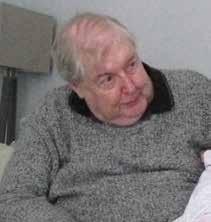
(Drake, 1965-1972) 1954-2022 ★
Richard was born and educated in Exeter and then went on to do a chemistry degree in Norfolk at the University of East Anglia.
I met Richard at the Careers
David
Muzzlewhite (1951-1955) 1944-2022
David was at the school for just four years. After school he joined Francis Clark in Exeter and qualified as a chartered accountant and he went to London as accountant to a soft drinks company. Over the rest of his working life he became an expert in the art of merging company accounting systems as his company was taken over time and time again. It says much for his expertise that he was kept on each time by the new company. He ended up as accountant to Coca Cola, Middle East. David enjoyed a 50-year marriage to Susan and his daughter Helen is
Training College in Swanley in 1975. It was Richard’s first choice of career and I was taking a break from teaching. We got married in August 1978 when Richard was working at a careers office in Essex and I was just about to return to teaching.
We lived in Tilbury in Essex for three years then moved to Rochester. Soon after this Andrew was born and then Karen.
As Richard was a great history lover he was really pleased to be living in Rochester and became a city guide for a few years. He also helped to set up the Friends of Eastgate House (a house that had connections with Dickens and was full of history) and became its first Chairman. Similarly he was an enthusiastic member of the Friends of the Guildhall Museum. His love of history was reflected in the choice of some of the U3A groups he joined –namely, the local history group, the history group and military history group.
With the U3A he also helped to form the seriously funny group which has been a popular group now for many years. His love of comedy is also reflected in the hundreds of CDs
an architect. His home has been in Camberley for very many years.
In retirement David took up ancestry and traced the family back to the 1700s. It helps to have an unusual surname although it is made more difficult if many ancestors were unable to write their own name leading to different spellings.
Philip Muzzlewhite (1953-1964)
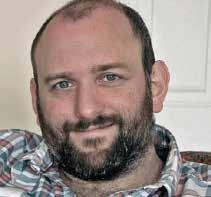
which he collected over the years –many from the era of Beyond Our Ken, The Navy Lark, Dad’s Army, etc.
Over the last few years he joined and became a committed member, with me, of St. Lukes Methodist Church where he also joined planning groups and where we now have many good and kind friends who have supported us both over the last few years. However, he wasn’t so keen as I am on the singing. As a boy, when auditions were taking place, he was classed as one of the ‘growlers’ not allowed to join the choir.
While still working in the careers service as office manager in Woolwich, he also became a magistrate and worked mainly in the Medway Court; he had a real ability for this work.
I feel glad that he had to take early retirement from his full-time work as this gave him time to enjoy his retirement in some of the ways I have mentioned before. I like to think that he is now re-united with friends and relations.
Rosemary Moss
(Drake, 1990-1997)
1978-2023
Nephew of David Muzzlewhite
After school Nicholas went to Liverpool University, gaining a history degree. He enjoyed worldwide travel with many school and university friends, and had a lot of travel adventures. He joined Price Waterhouse Coopers in Bristol, rising to senior manager. He married in 2010 and his daughter, Grace, was born in 2013.
Philip Muzzlewhite (1953-1964)
(Buller, 1951-1955) 1937-2023
Laurence Pearse died at home in Bournemouth at the end of last year aged 85 after a short illness. He always remembered his days at Exeter School fondly. After high times in national service he went to work for Lloyd’s Bank where he stayed for the rest of his career. When he retired he managed trusts, ran a small business and sat on finance committees until the last year of his
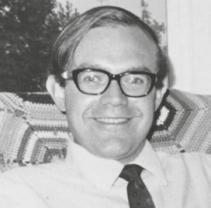
(Buller, 1951-1958) 1939-2023
Archie Pitts was born in Exeter in 1939. His earliest memories included sheltering under the kitchen table for fear of German bomber attacks. His ancestors had been farmers, fishermen and sailors and his first home had a large garden, producing a good crop of vegetables and particularly fine blackcurrants.
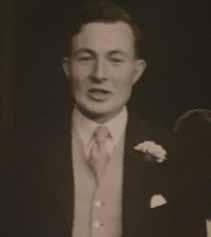
life. He was a much-loved husband, father and grandfather.
Emma Pearse
These were bartered for eggs and milk and other wartime luxuries. Archie gardened from infancy and learned trading skills early. He enjoyed gardens all his life and all over the world.
From Exeter School, Archie won a scholarship to Wadham College, Oxford, to read mathematics. There, he met Marianne. When they married in 1964 they moved to jobs at the then new University of East Anglia. They taught and brought up their children, Clarke, David and Isabel, in Norwich. All three inherited Archie’s mathematical ability, his long legs, and his love of cats, always, of course, reciprocated.
When the School of Accounting and Computer Studies opened at UEA, Archie was persuaded to jump ship from pure maths to finance – the mathematics of money. Archie’s change of career showed great promise, but he was shipwrecked by a rare cancer in his neck, requiring extensive treatment, and ageing him cruelly.
He kept going and moved to a more senior post at the University of Warwick, living in Leamington. When he retired from academia he devoted his time to the Leamington Society, founding groups of Friends of Leamington Station and of the Pump Room Gardens. He was an excellent fund-raiser, with an instinct for both networking and money. The results of his efforts continue to benefit the buildings, the open spaces, and the people of this Regency spa town.
The first half of Archie’s life was altogether a success story; the second half was bedevilled by illness: the cancer was cured by radiotherapy but left him with many consequent medical problems. He endured all of them and carried on with courage, determination and an admirable lack of self-pity. He was intelligent, original and kind, happier in small groups than large, enjoyed good food and wine and was always great fun to be with. His marriage to Marianne lasted 59 years, until he died with his family around him at the age of 83 in July 2023.
I thank Marianne Pitts for telling me more than I knew about Archie’s life, and I add an afterword:
The first time that C G C Pitts and I were in the same room together was on in his last day at Exeter School, in 1958. The whole school had assembled at the end of the Easter term in the gym. F K Paul, who had just signed a glowing final report on Pitts, presided. The prep department boys saw a role model standing before them: Pitts, leaving the Third Year Sixth, had the highest academic achievements in A and S Levels and was going to Oxford. I sat cross-legged with the rest of Form 1B, looking up from the front row.
The next time that we saw each other was over forty years later. Early in the present century, a congenial man called Archie Pitts pursued civic interests in Leamington similar to my own in the neighbouring town of Warwick. A chance remark gave away his Exeter upbringing, and tweaked a faint memory. But I had to ask how the brilliant sixth former C G C had become the wise retired academic Archie. He explained: H A Bagnall – who had a penchant for such things, indeed was known to my father’s generation as Bertie and to mine as Harry – had said to Pitts, after teaching him Latin for a while, ‘You don’t seem to me to be a Charles, you’re much more like an Archie’. His friends took it up and it stuck; when he went up to Oxford with a handful of them they passed it on to his undergraduate colleagues; and he was Archie to everyone who knew him, to the end of his life.
Jamie Mackay (1957-1968)
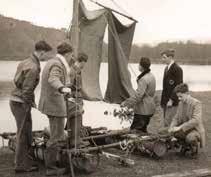
1949-1960) 1940-2023
Born in Exeter, Braxton was an Exonian through and through and spent his working life in the city, bar a few years of training in London. He was an erudite scholar at school who disliked sport apart from shooting, which did not count as it was usually sedentary. His ability to produce sick notes to excuse games was always admired. He had a practical side to his character, evidenced by the purchase of a dilapidated 1929 Rolls Royce when he was 17, which he proceeded to strip down and rebuild, driving it to London when he went to UCL to study chemistry. Upon graduating he went to work for the public analysts for Surrey and in due course was awarded his MChemA at the first attempt.
He then joined his father in the long-established firm of Tickle & Reynolds, and was appointed the public analyst for Devon, Cornwall and the Isles of Scilly. That launched a long and distinguished career in food safety, with membership of many official committees and bodies, both here and in Europe. He appeared on one occasion before a House of Commons Committee and presented them with a list of 66 questions which he suggested they should be asking of him and the
others appearing before them! He was never shy of doing battle with officialdom and had no patience with politicians and others whom he thought did not take the issue of consumer safety seriously. He was president of the Association of Public Analysts from 1998 to 2000 and chaired its Scientific Affairs Committee for many years.
He enjoyed doing work for solicitors, and became a renowned expert on the speed of absorption and dissipation of alcohol in the blood, giving evidence in court cases well into his seventies. On one occasion he had the task of analysing paint samples taken off the hull of a sunken trawler to determine whether they may have come from a collision with a submarine.
He never married. He was an avid collector both of treasure and trash and a regular attender at Sunday markets. He never threw anything away and his large rambling house and laboratory in Heavitree was home to an estimated 120,000 items of papers, records, journals, notes and books some going back to 1900. His companion in his later years was his loyal Jack Russell. He died of complications from mesothelioma on 31 May 2023.
John Carter (1952-1959)
(Crossing, 1973-1980) 1962-2020
Steve Richards passed away in Thailand in 2020. He was a keen long-distance cyclist and led an unusual and interesting life out in Thailand. Steve remained close to many of his friends from Exeter School throughout his life. Steve’s parents, David and Virginia, have shared a book with the school that collects messages, photos and thoughts from Steve’s friends. This book will be kept in the Exonian Centre.
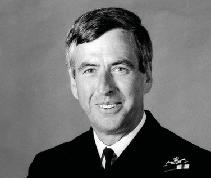
(Drake, 1949-1954) 1938-2023 ★
Richard was born on the 2nd August 1938 in Exeter. Despite the hardships of the war years, in which his family home narrowly escaped getting destroyed by a German bomb, he spent a happy childhood with his parents and older brother Raymond.
Living so close to the River Exe inspired Richard’s choice of career. In the 1930s, his father bought an ex naval cutter. Adding an engine and building a cabin, he transformed it into a family cabin cruiser in which
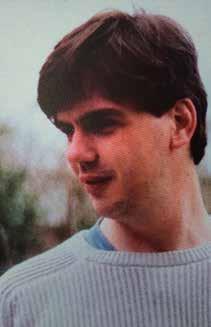
they spent much time on the river. As a result, Richard always wanted to join the Royal Navy. Aged 15, he went through the tough selection process to become a naval cadet, and was one of 36 selected to join the Britannia Royal Naval College in Dartmouth in September 1954.
The 37 years Richard spent serving in the Navy were transformative – as he put it, “it converted a gawky shy boy into a reasonably competent naval officer, and gradually gave me the confidence to lead people”. Richard went on to achieve success both on submarines and surface ships. He then took on land-based roles, including time working for Nato in Norway, the MoD, and finally, the Royal Naval Auxiliary Service, of which he became Captain before retiring from the Navy in 1991.
It was through the Navy that he met his wife Aileen, who was a second officer in the Wrens. They met in 1969 while they were both serving in Gibraltar. They married the following year and remained devoted to each other throughout the rest of Richard’s life. They had two daughters, Alison and Katharine, and four grandchildren, Patrick, Charlotte, Eleanor and Phoebe, with whom Richard shared many happy memories.
After leaving the Navy, Richard worked for the British Sailors’ Society charity, before becoming Chief Staff Officer of the Maritime Volunteer Service.
Eventually Richard and Aileen relocated from Selsey in West Sussex, to Tiverton. Being back in Devon made Richard very happy, and he delighted in the community of St Peter’s Church in Tiverton. He also took great pleasure from his visits to the Exe Valley Leisure Centre, where he would complete 32 lengths of the pool before breakfast. And he was very pleased to reconnect with Exeter School, of which he had many fond memories.
Richard was a kind, wise man who was a lot of fun and possessed a zest for life. He died in a car accident on 26 May 2023, and is very deeply missed by his family and many friends.
Alison Stenlake
(School, 1952-1958) 1940-2022
On leaving school Joe went to Sandhurst and enrolled first into the Royal Hampshire Regiment, where he served in the Carribean, Germany and Northern Ireland. He later transferred into the Army Air Corps as a helicopter pilot, achieving the rank of major and serving in Hong Kong, Germany, the UK and with NATO.
On leaving the Army in 1977, he went to fly helicopters to the oil rigs in the North Sea and India, and continued to fly for the Territorial Army, earning the Territorial Decoration.
In retirement he consulted on helicopter operations for the RNLI and the AA trying to consolidate air ambulance operations.
He distinguished himself as a runner-up in Mastermind in 1979, he was a steward and trainer of stewards at Wimbledon for more than twenty years, a trustee of the Royal Hampshire Regimental Museum and a Dorset Police volunteer, running the CCTV system in Wimborne town centre.
At school he developed a love of sport, particularly of cricket and in later years was an enthusiastic golfer. A keen supporter of Bournemouth Football Club, he was proud to have a season ticket for a premier division club.
He had a lifelong interest in military history, assisted in the filming of Flight from Colditz, and was a published author of his work Breaker Morant the Final Round-up
He thoroughly enjoyed his annual pub meetings with many of his contemporaries at Exeter School, and is sadly missed by all his friends, his wife Sue and daughters Sarah and Catherine.
Sue West
The early seventeenth century was a period of great prosperity for Exeter, and its citizens looked to invest their wealth in public services. The City Chamber wished to increase the educational provision in the city and so, with support from a number of visionary donors, the Exeter Free Grammar School was founded in 1633. It was housed in the medieval buildings of St John’s Hospital on Exeter High Street.
Ashort time later, in 1636, another school was founded and housed in St John’s Hospital –the Bluecoat School. This school was for children “born within [Exeter] especially of such as were of the meanest sort” and had a very close relationship with the Exeter Free Grammar School (indeed, it was housed directly underneath the Free Grammar School). The Bluecoat School’s pupils
wore blue caps and gowns, and you can see two statues of Blue Boys in the school today.
One is housed in the Exonian Centre. It was modelled on George Wall, who was renowned for his good behaviour, as well as his dedication to and enthusiasm for learning.
George became an apprentice to John Weston, a stone cutter, who probably designed the statue. It was carved by him in 1733 and cast in iron.
The statue in the Exonian Centre
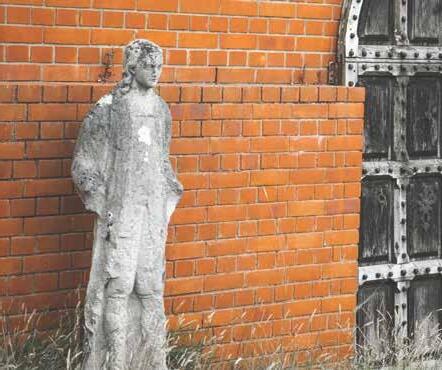
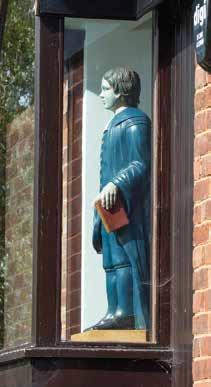
is one of a set of four. They were originally provided to the school when it was rebuilt in 1859-60. One stood in the playground, another above the clock on the sill of the south window, and the other two on each side of the fireplace in the hall of the orphanage.
The figures designed to stand against walls were hollow at the back and those standing free were complete. Apart from this, they were almost identical in design.
Every week, the figures were polished with black lead by a boy assigned to the task.
After being temporarily lost in the war the statues were subsequently found and relocated. They can now be found at: Exeter School, Princesshay shopping centre, The Maynard School and the Ark (a storage facility of the Royal Albert Memorial Museum on Marsh Barton).
There is another Blue Boy statue at Exeter School made of stone rather than cast iron. It stands at the bottom of the tower, next to a door from the St John’s Hospital site.
Thank you to Chris Cooke (1965-1972)
Thank you to the following individuals who have made gifts to the school since August 2023. We are very grateful for your support.
Vasile Badescu and Lucia Popescu
Martin and Wendy Barratt (1982-1983)
Richard Barrett (1957-1966)
Jonathan Bashforth (1987-1993)
Paul Beckett (1973-1980)
Paul Bolden (1976-1986)
Julian Brandling-Harris (1962-1969)
Stephen Chester (1976-1982)
Philip Coombs (1971-1982)
Philip Craven (1965-1972)
Robert Craven (1967-1968)
Paul Darnley (1982-1988)
Tim Dashwood (1968-1973)
Neil Downes (1953-1960) and Mary Downes
Miquel and Vania Ferreira Castro
William Finnie (1956-1961)
Michael France (1962-1968)
George Garner (1982-1994 – former staff )
Emad George (1976-1982)
Eddie George (1977-1983)

Richard Gilpin (1974-1978)
Paul Harrison (1968-1975)
Nigel and Ruth Harvey
Andrew Hayward (1971-1978)
Stephen Hodder (1969-1976; governor)
Alice Holohan (2021-present – staff )
John Imlach (1950-1957)
James and Emma Inglis-Jones
John Jago (1949-1956 – former staff )
Robert Johns (1960-1966)
Ian King (1977-1983)
Peter Kumik (1976-1982)
Miles MacEacharn (2018-present – staff )
Fred Mayall (1971-1982)
Beverley Meeke (2005-2017 – governor)
John Mullins
Philip Mullins
Charles and Katie Olney
Marcus Paul
Stephen Pepper (1978-1985)
“Despite taking humanities based A Levels, with help from the MedSoc and extensive one-to-one career support, I ended up getting a place to study medicine at the University of Manchester.”
Steve Perring (1977-1981)
Jonathan and Lucy Porter Goff
Toby Quartley (1986-1992)
Ashley Retter (1985-1996)
Louise Simpson (2020-present – Head)
Martin Smith (1963-1970)
Jon Spencer (1967-1972)
Richard Spiller (1956-1961)
Andrew Thomas (1966-1972)
Jonny Titchin (2023-present – staff )
Matthew Towill (1958-1973)
Nicholas Treble (1966-1972)
Gordon Twinberrow (1957-1962)
Ian Tweedie (1952-1959)
John Wheeler (1964-1975)
Peter Woodward (1956-1959)
And two anonymous donors
All care has been taken to ensure the accuracy of this list. However, if any error has occurred please accept our apologies and notify the Alumni and Development offi ce so that we can amend our records. Thank
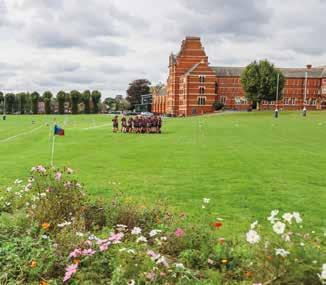
To fi nd out more about Adam and the Exeter School bursary scheme, please turn to page 20.
We look forward to welcoming you to one of our events, whether that’s at school or further afield. Sometimes dates have to change so please do keep an eye on the alumni events section of the school website which always has up-to-date information about upcoming events. Alternatively, feel free to get in touch with the Alumni and Development office at any point.
Classes of 2022, 2023 and 2024 celebration
Friday 6 September 2024
Charity touch rugby tournament
Saturday 7 September 2024
Exonian quiz
Friday 27 September 2024
Exonians in Bath
Wednesday 13 November 2024
Exonian Lecture and donors’ reception
Friday February 7 2025
London dinner
Thursday 27 February 2025
Exonians in Cardiff
Wednesday 12 March 2025
OE football and OE hockey matches
Monday 31 March 2025
Class of 1955 anniversary
Wednesday 2 April 2025
Alumni and donors’ reception at the Devon County Show
Thursday 15 May 2025
The best way to learn what Exeter School and Exeter Pre-Prep can offer your child is to visit us in person. Please find a list of our open events below. Alternatively, we are delighted to offer individual family visits of the school. Please get in touch with Liz Williams, Director of Admissions and Marketing –esw@exeterschool.org.uk, to arrange this.
Exeter Pre-Prep open morning
Thursday 19 September 2024
Whole school open morning
Saturday 5 October 2024
Whole school open morning
Thursday 28 November 2024
Whole school open morning
Friday 24 January 2025
London drinks and class of 2015 anniversary
Wednesday 21 May 2025
OE golf
May 2025 (date TBA)
Anniversary dinner –’65, ’75, ’85, ’95, ‘05
Saturday 14 June 2025
OE cross country
Saturday 28 June 2025
OE cricket and donors’ reception
June 2025 (date TBA)
Exeter Pre-Prep open morning
Tuesday 11 February 2025
Summer open evening
Thursday 8 May 2025
Exeter Pre-Prep open morning
Monday 19 May 2025
Whole school open morning
Tuesday 17 June 2025
